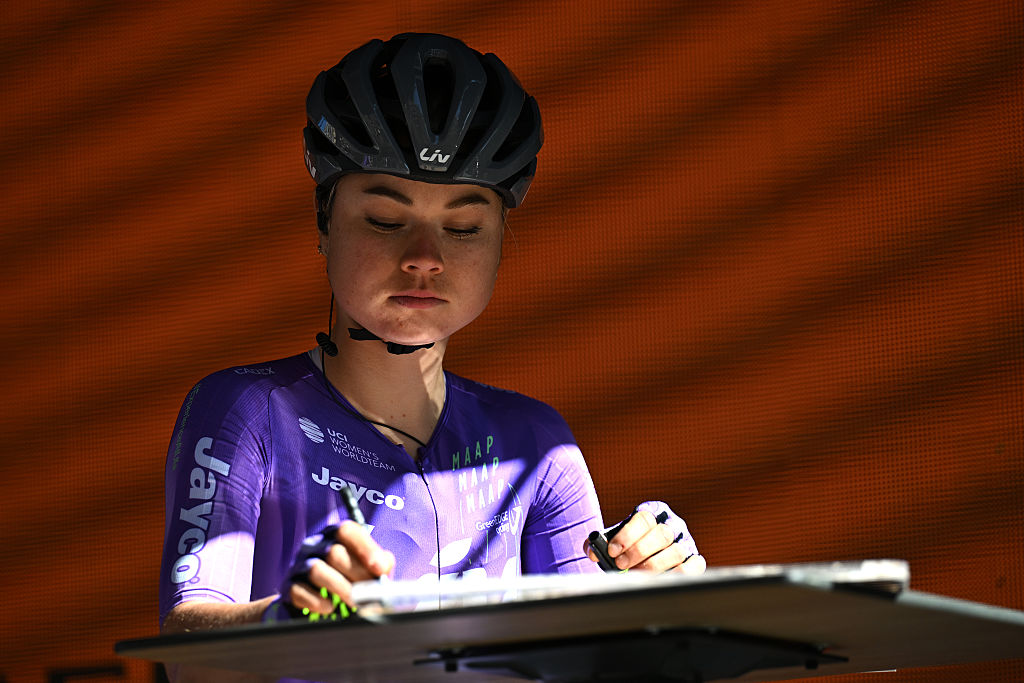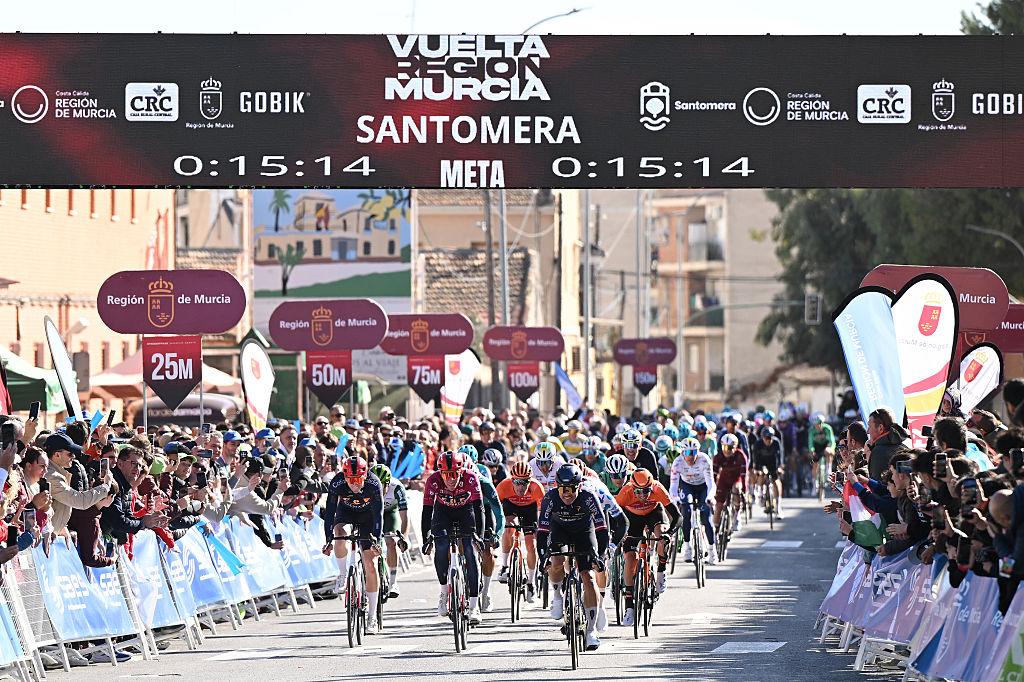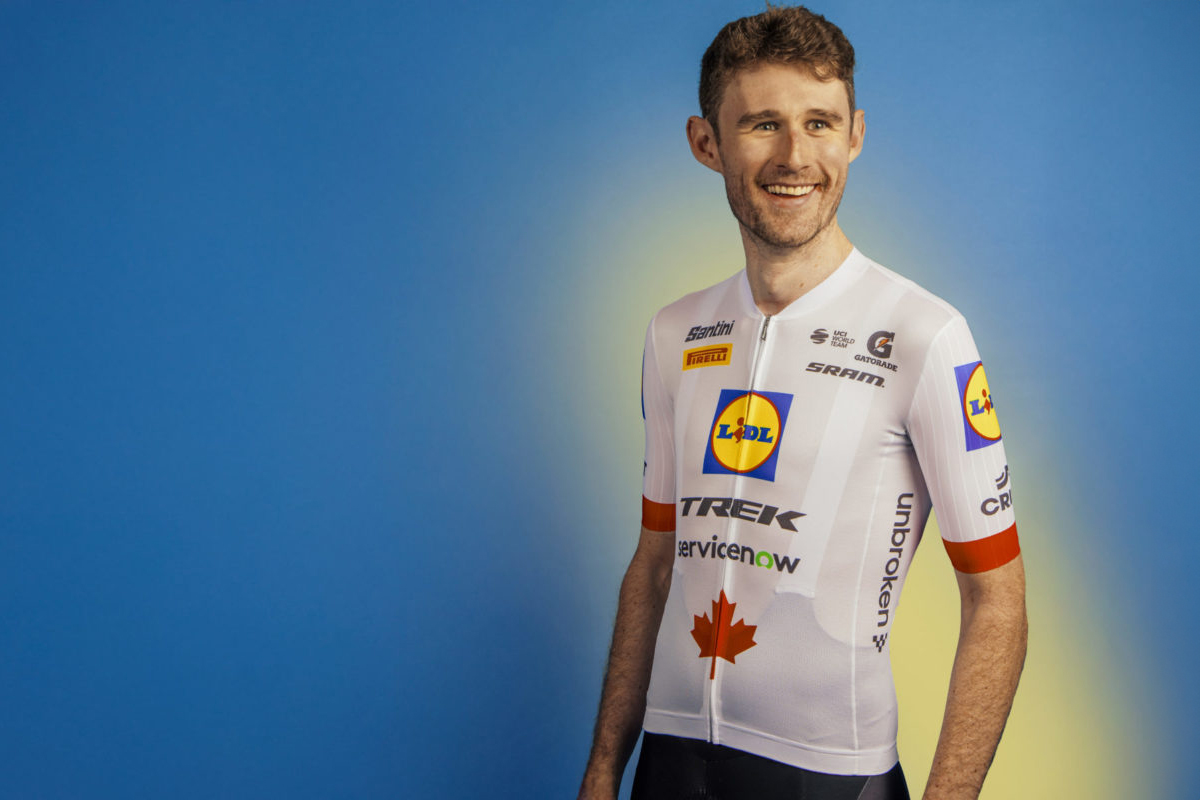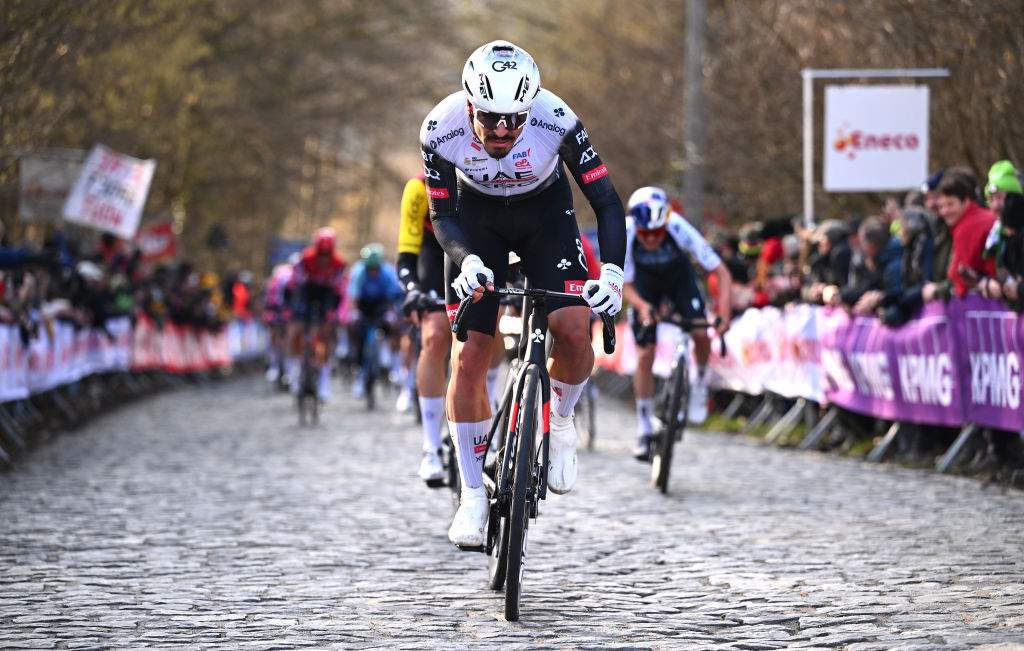Tour of Flanders: Mathieu van der Poel smashes Monument with massive solo victory
Luca Mozzato takes second, Nils Pollit moves up to third as Michael Matthews is relegated for dangerous sprinting
The latest race content, interviews, features, reviews and expert buying guides, direct to your inbox!
You are now subscribed
Your newsletter sign-up was successful
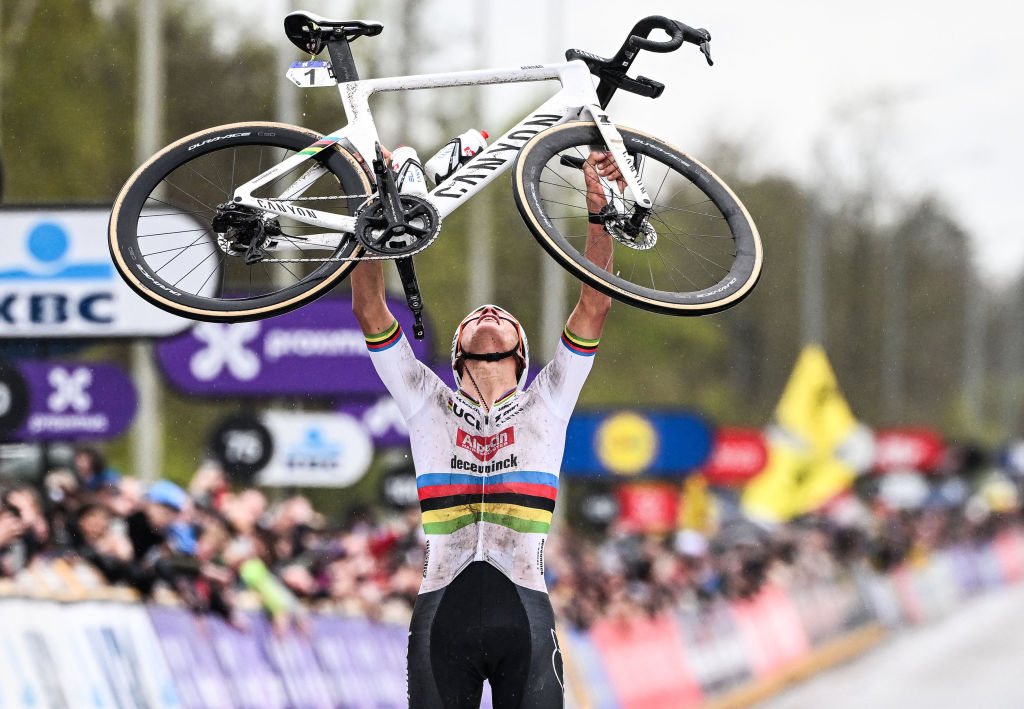
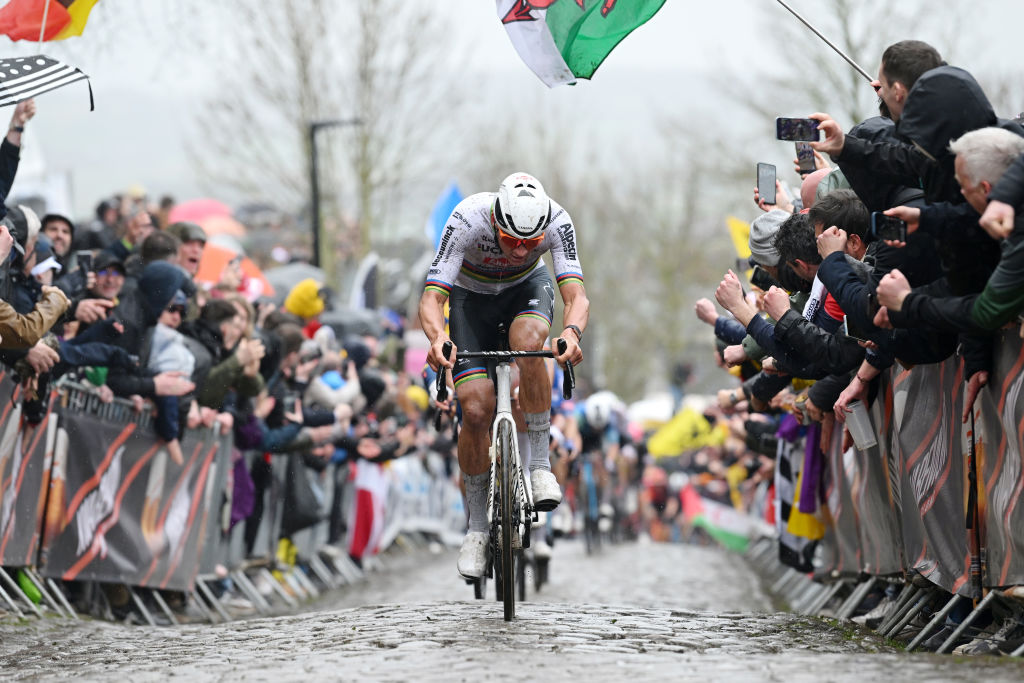
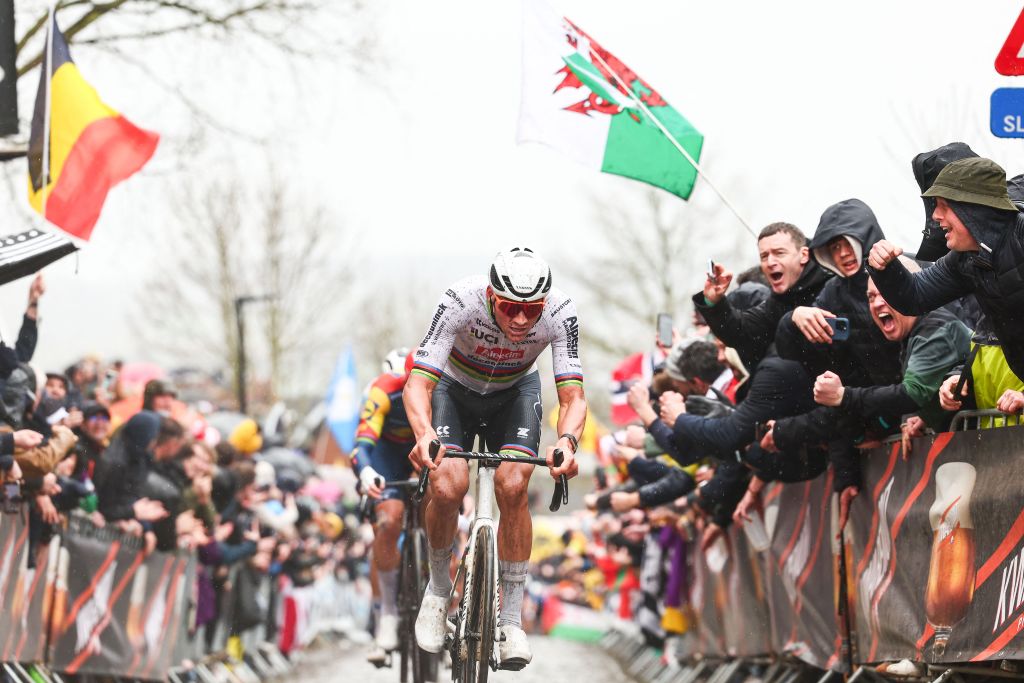
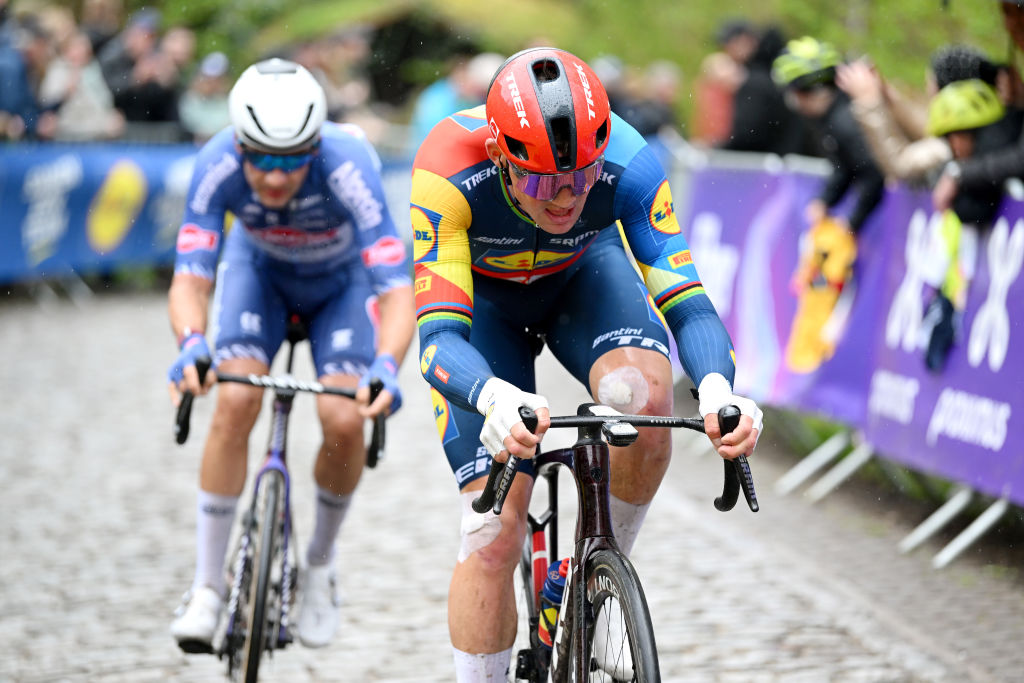
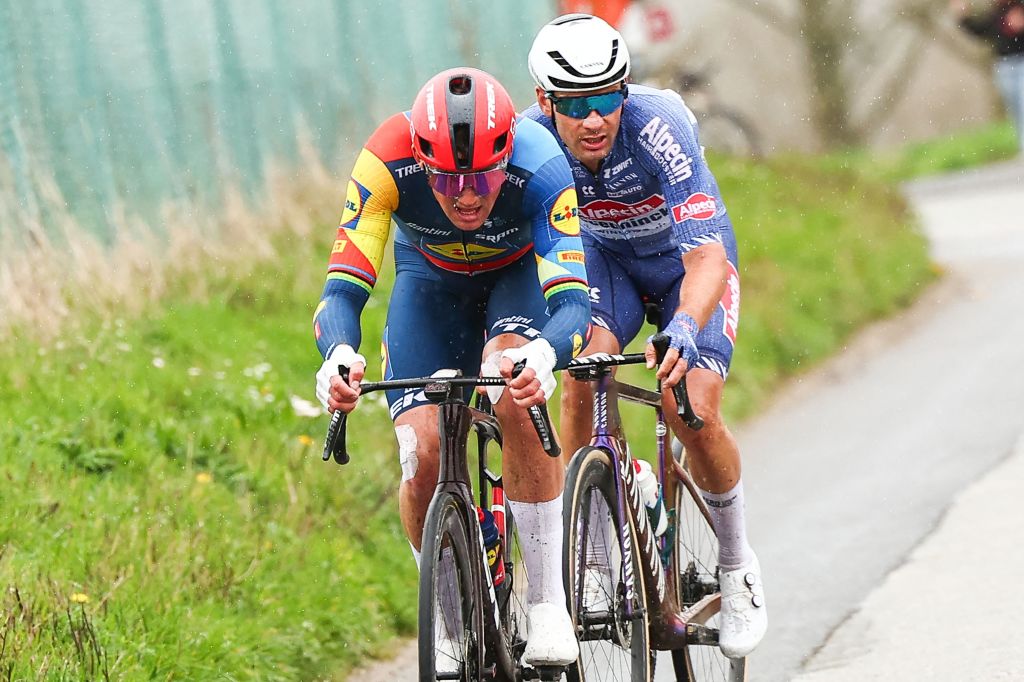
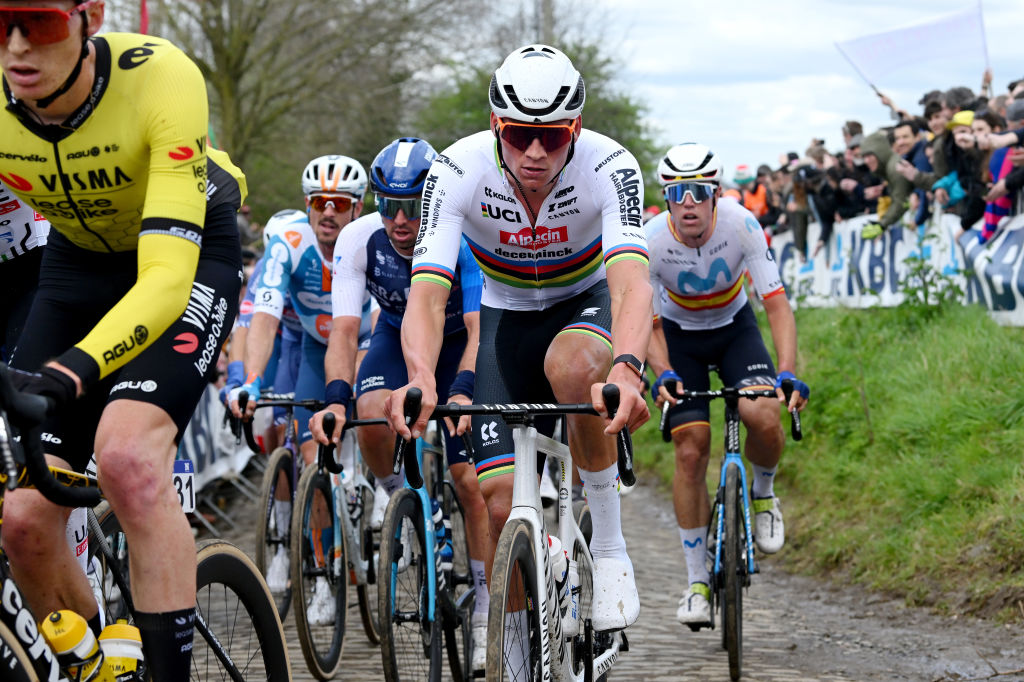
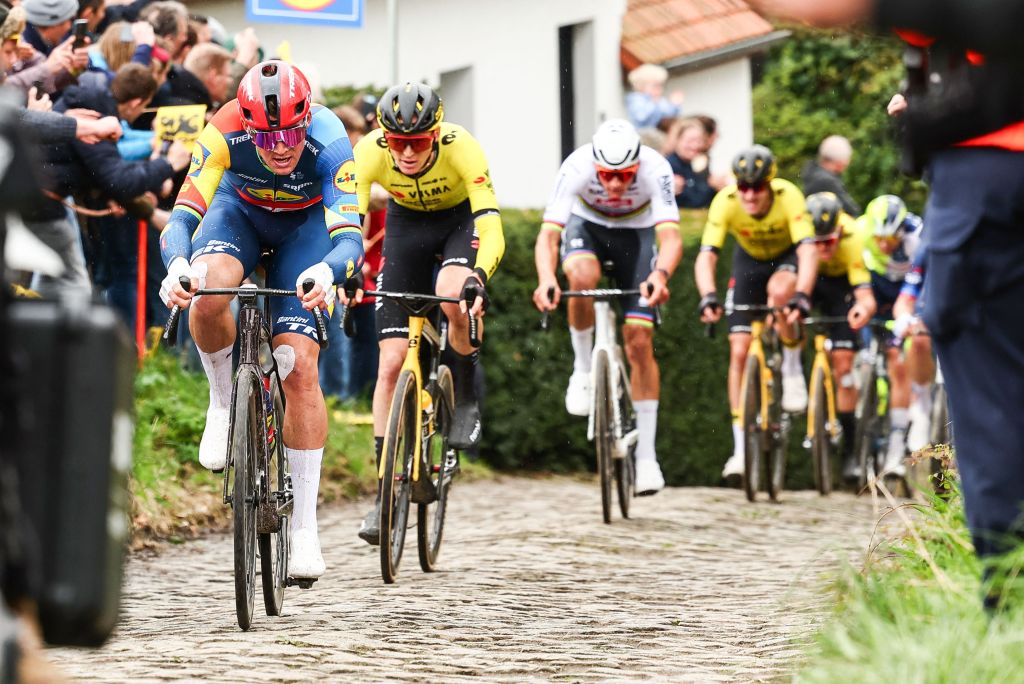
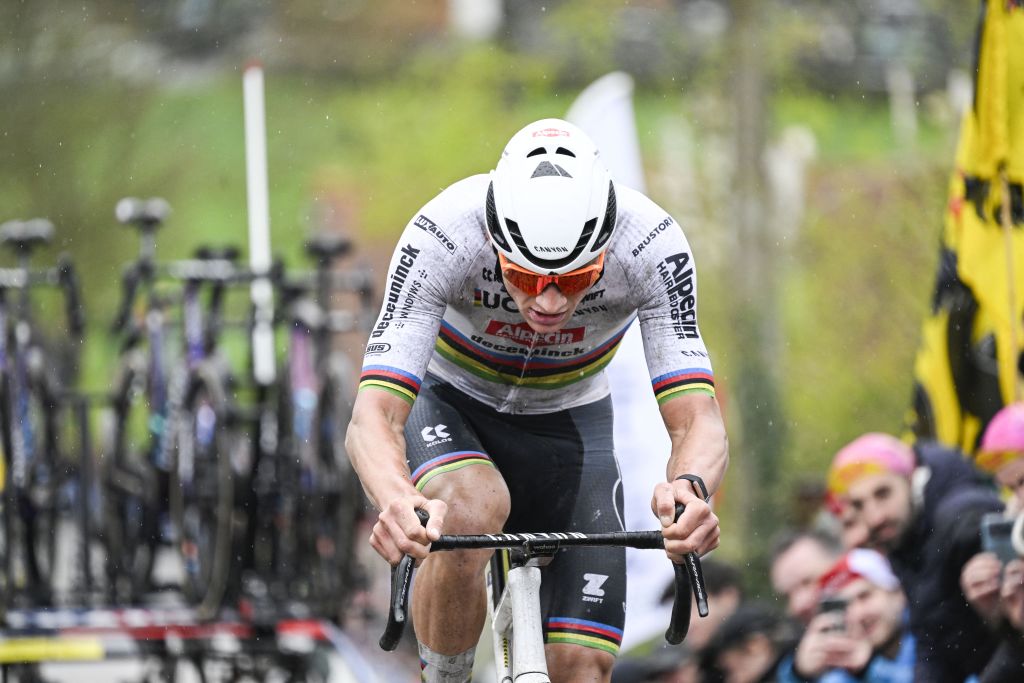
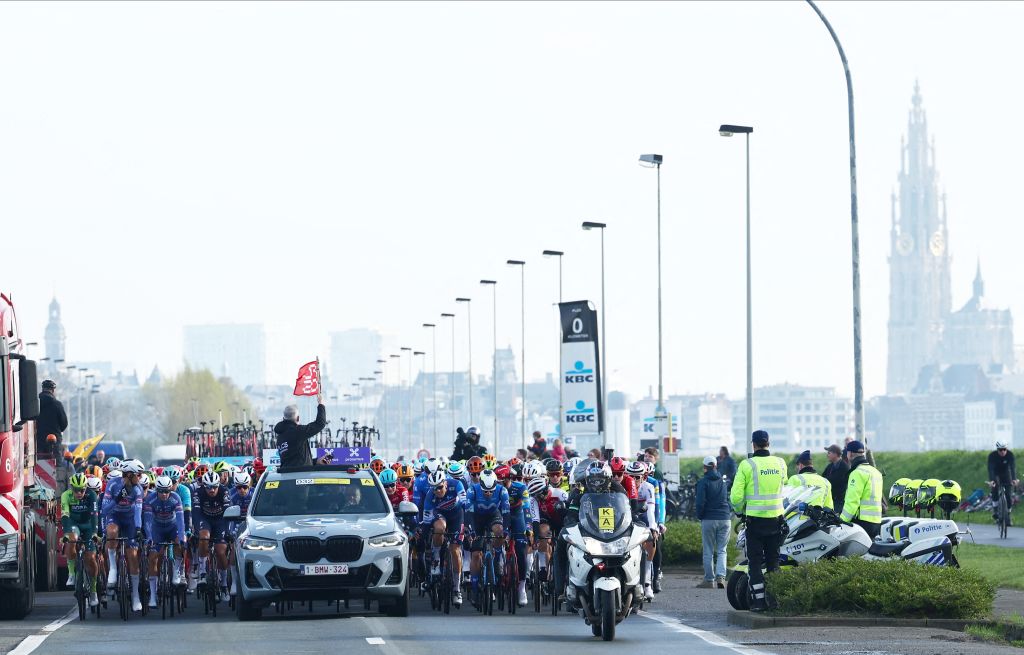
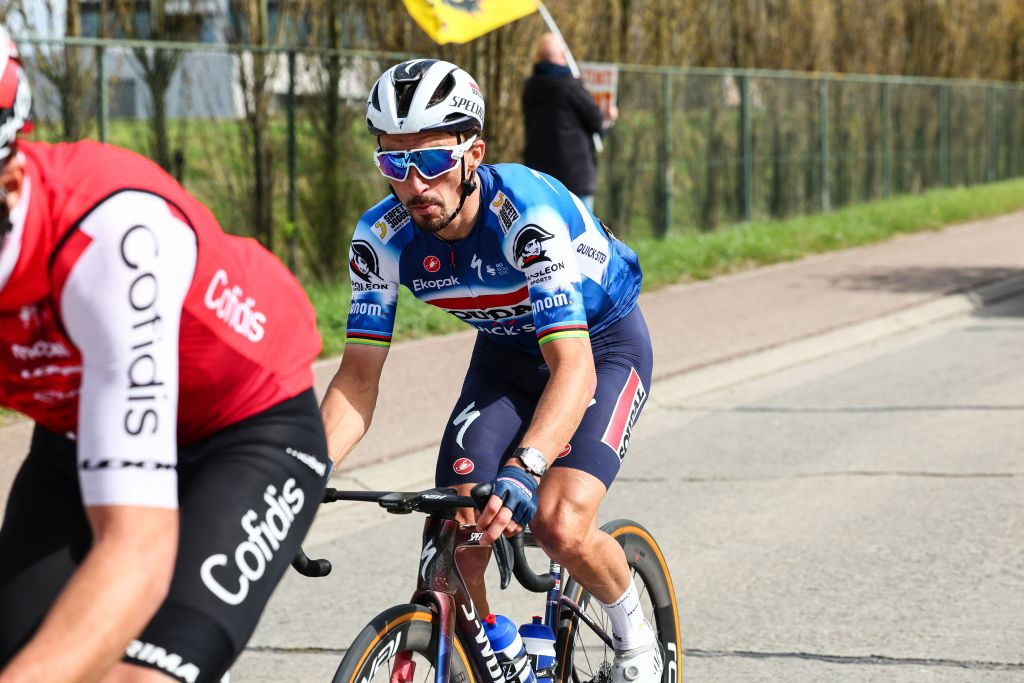
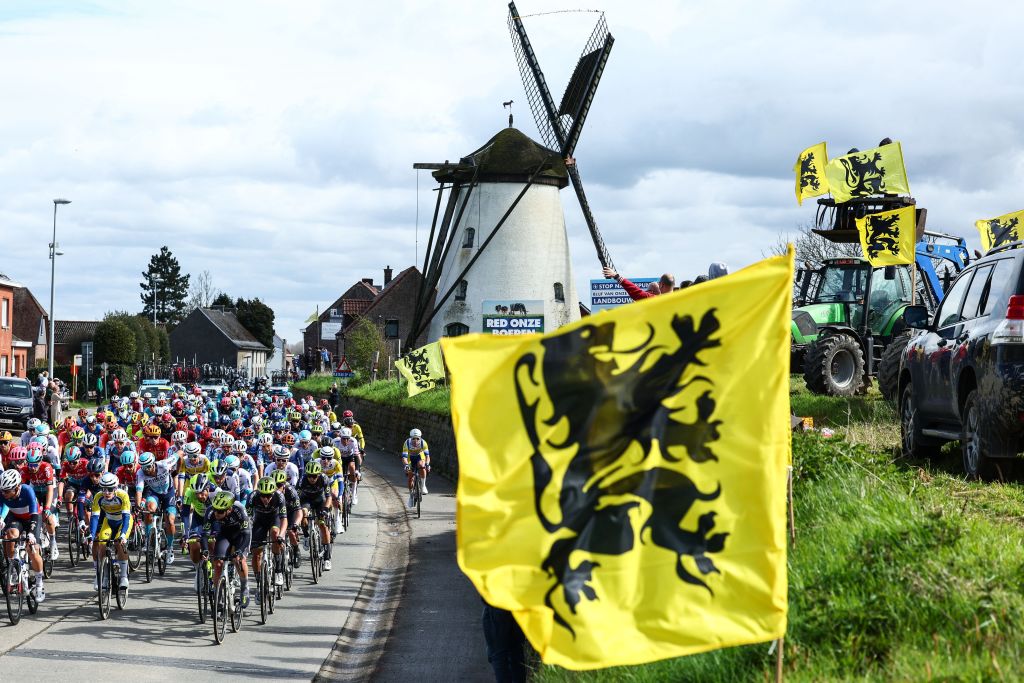
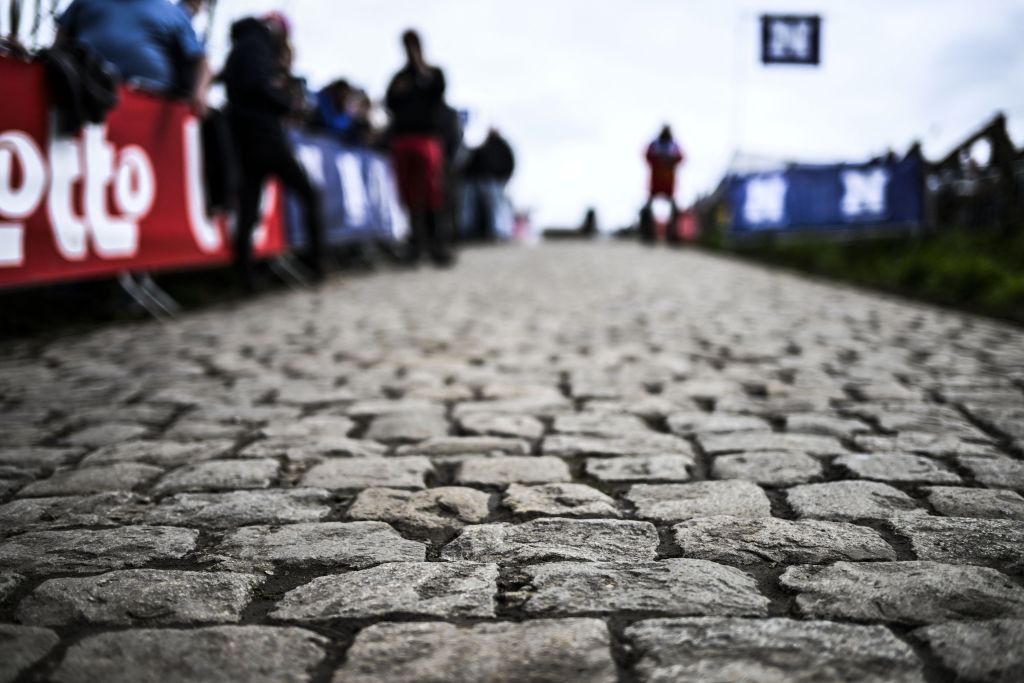
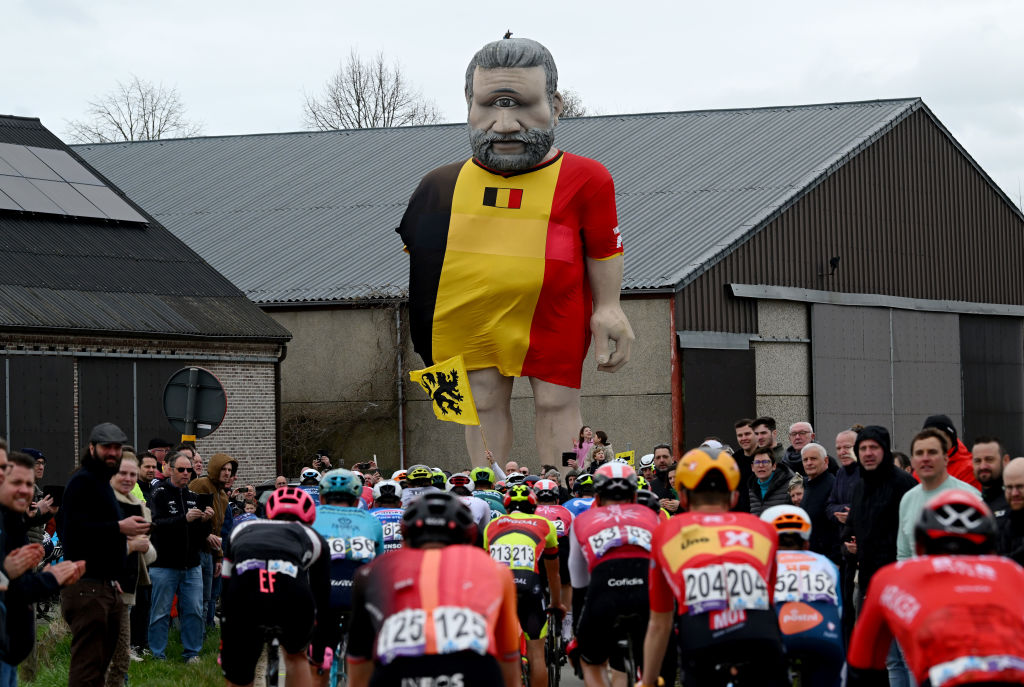
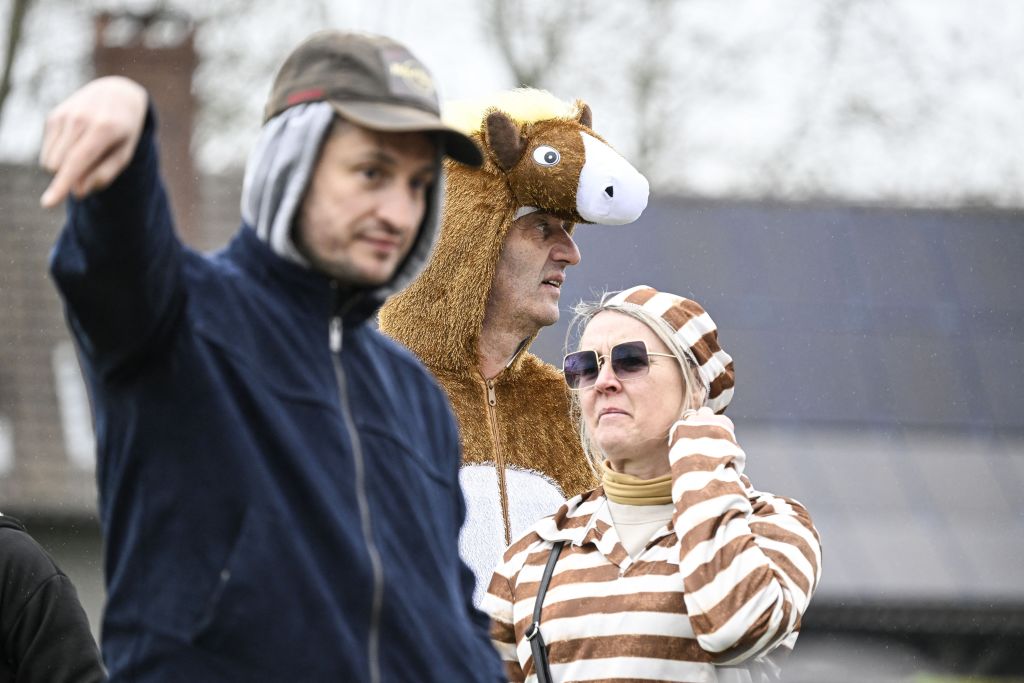
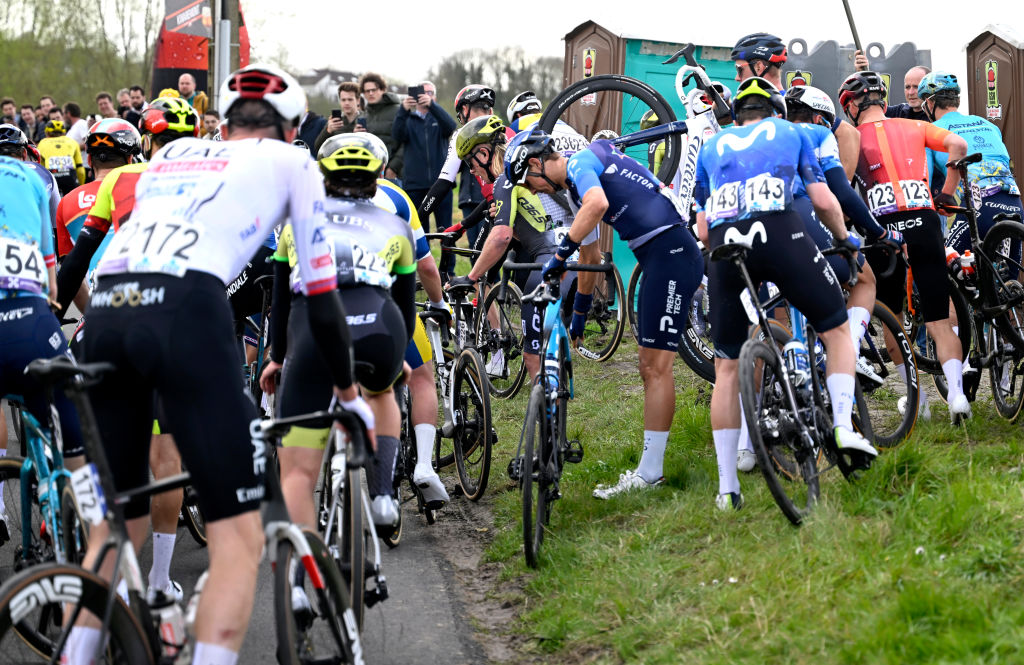
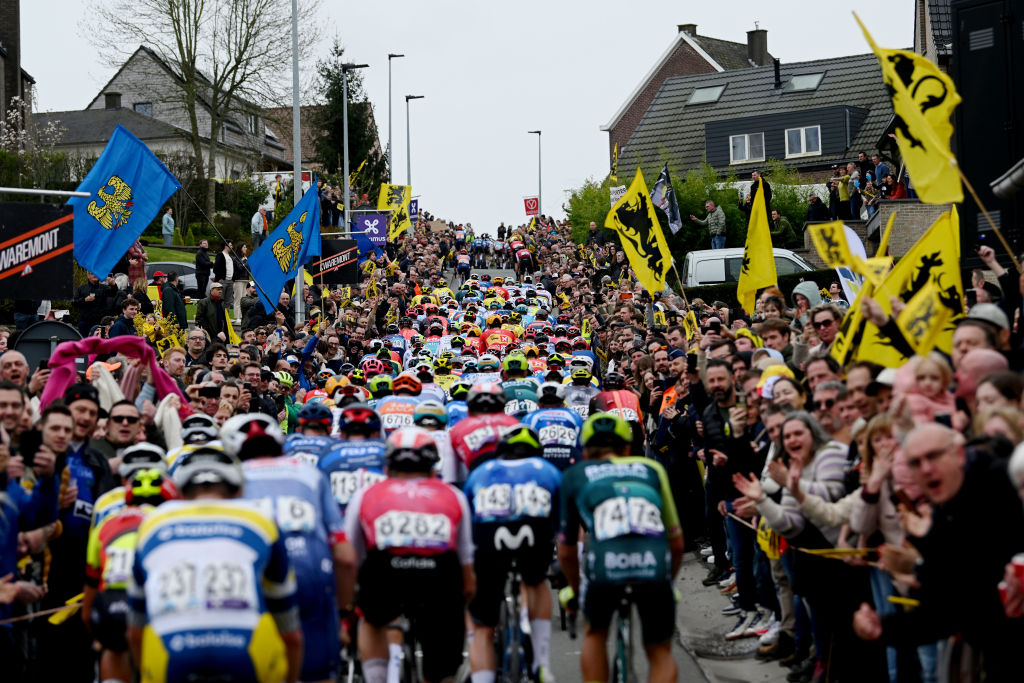
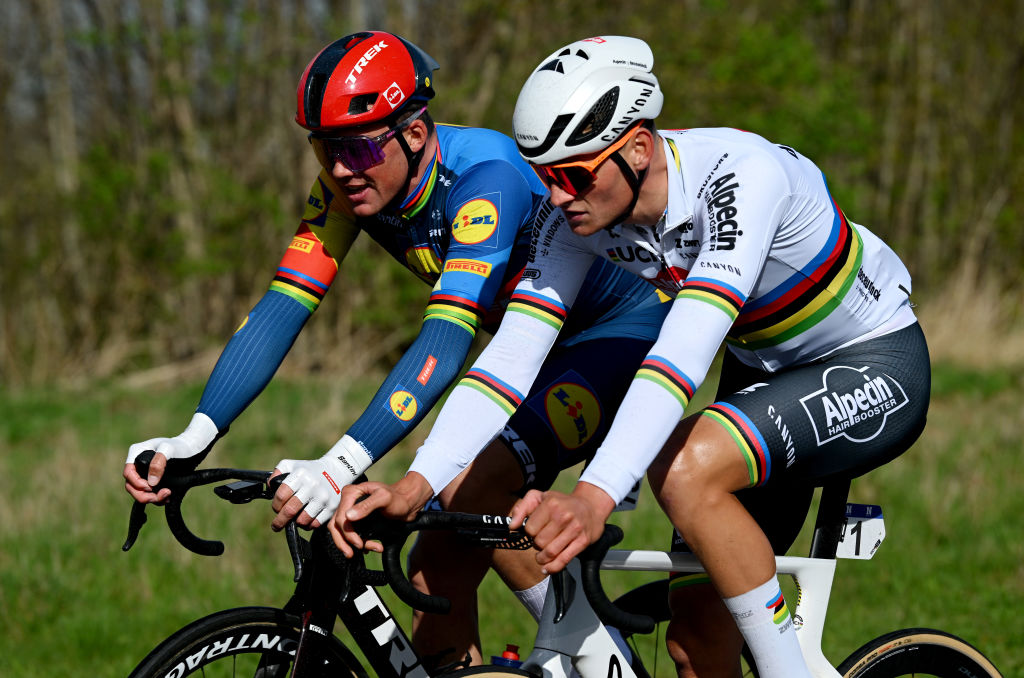
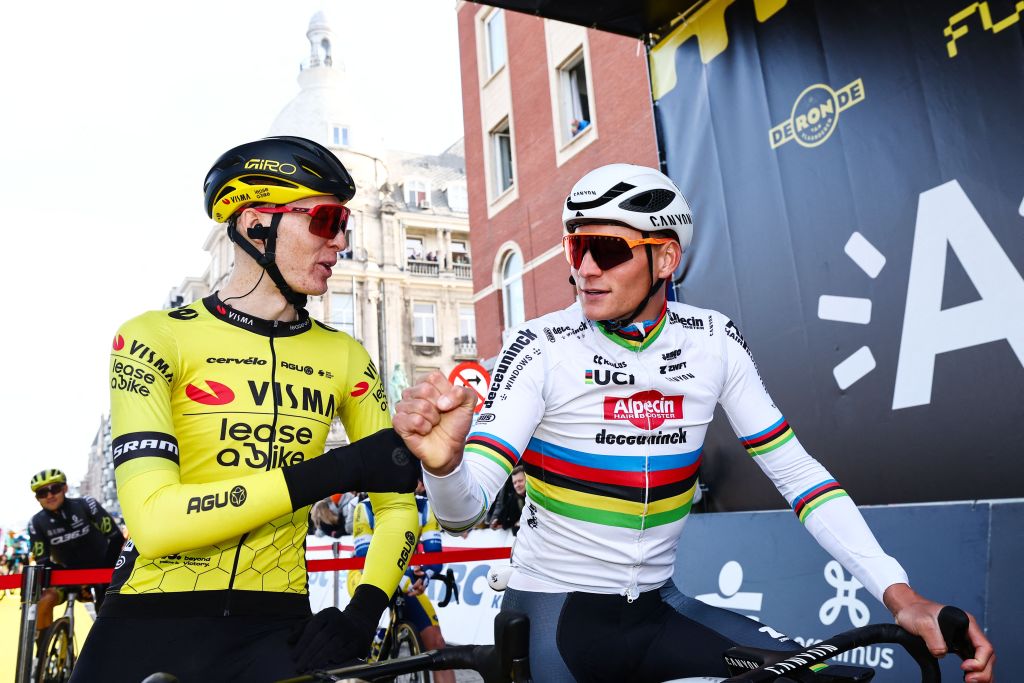
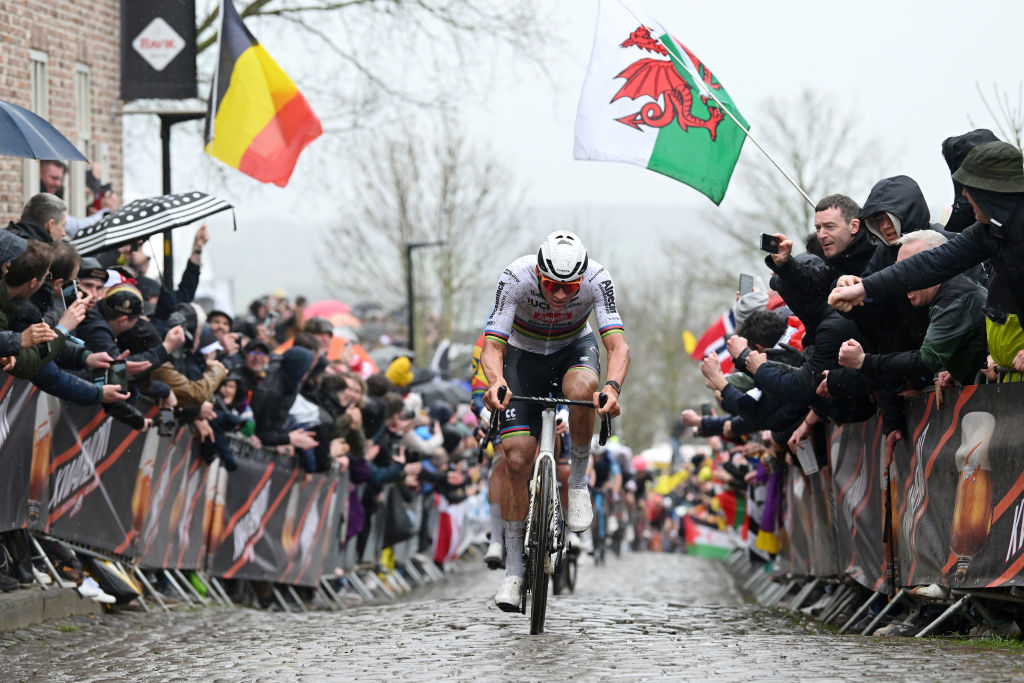
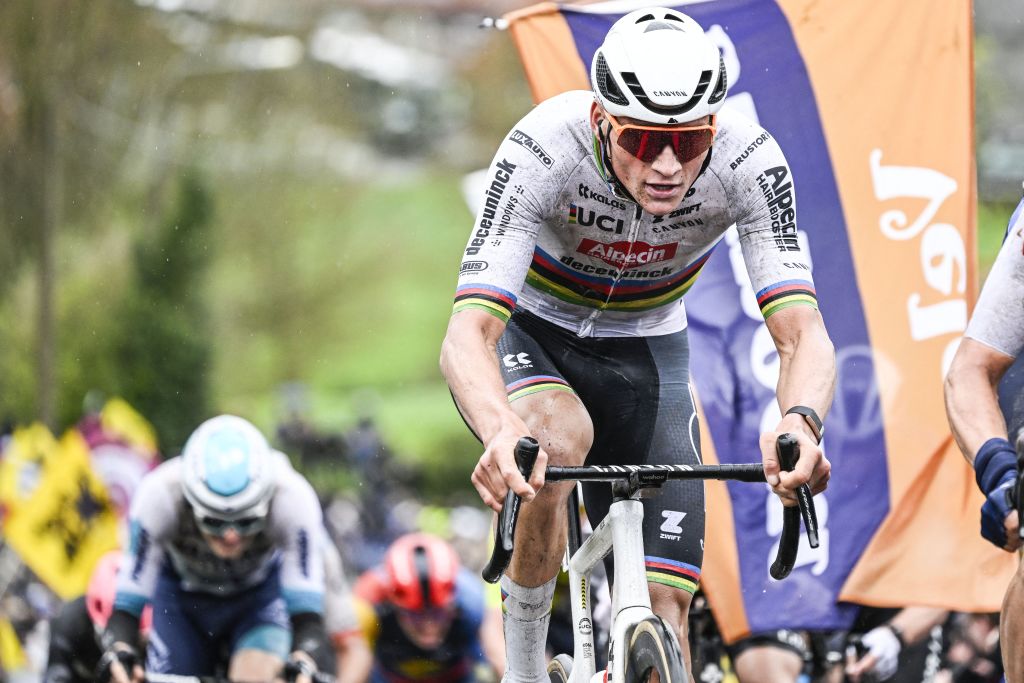
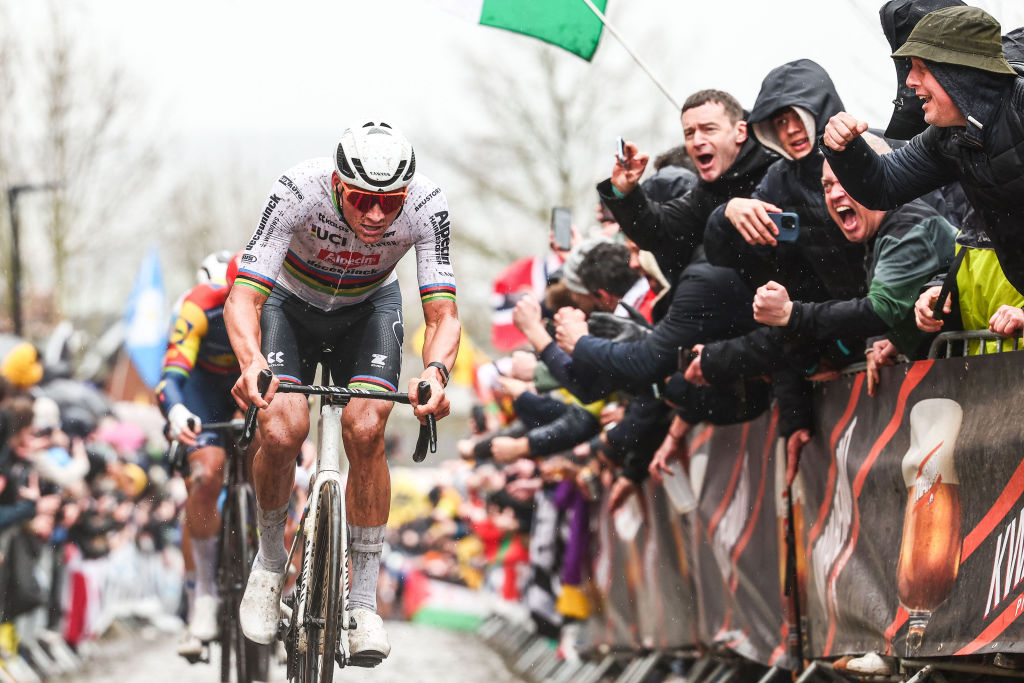
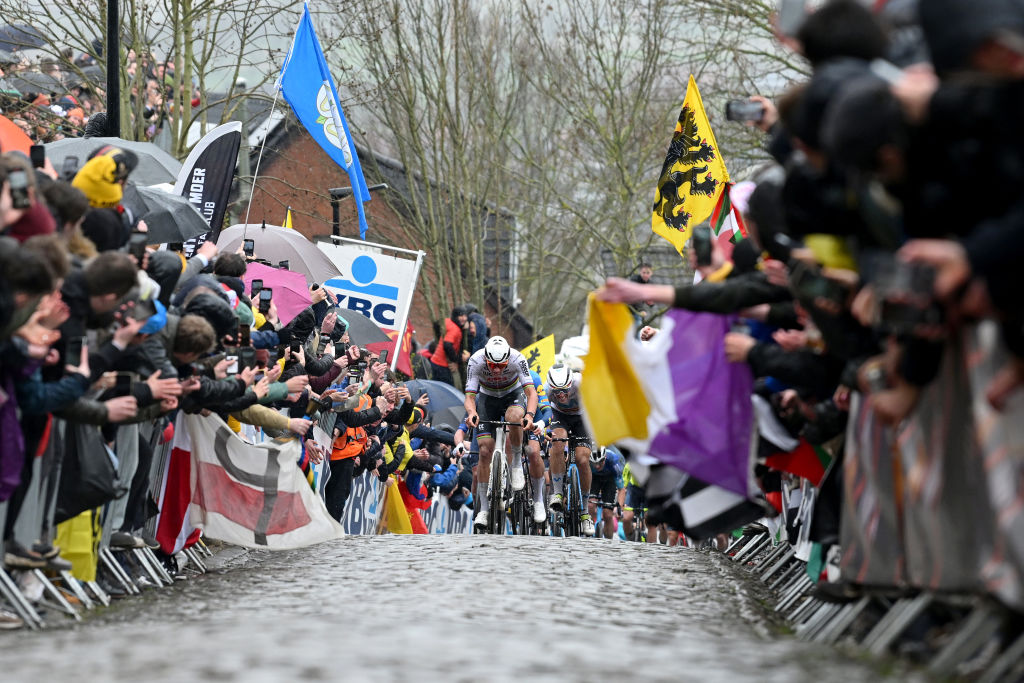
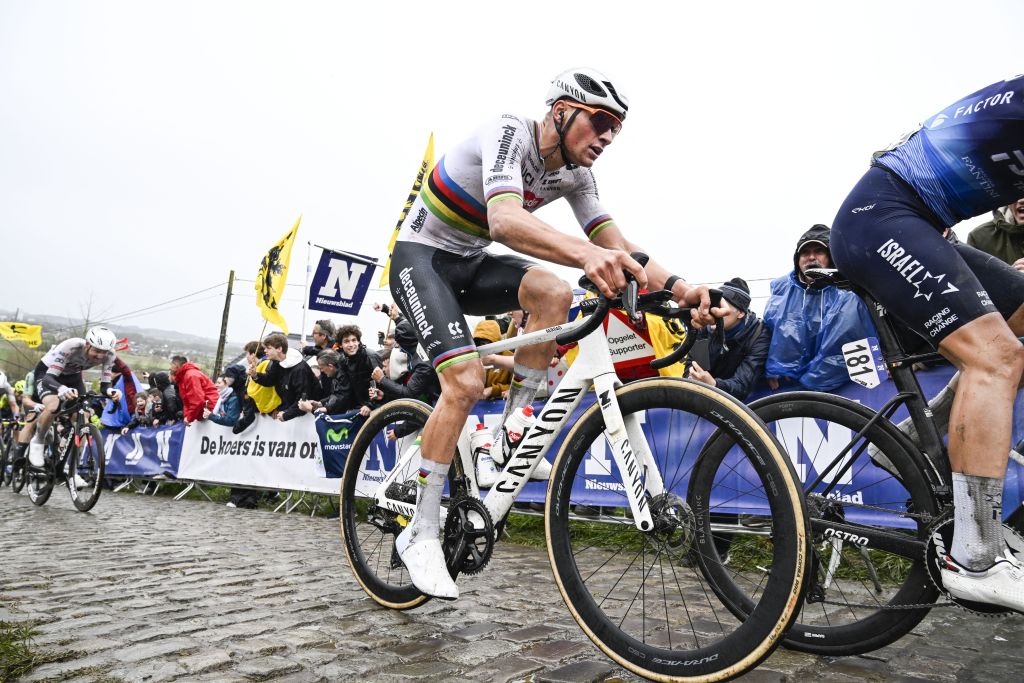
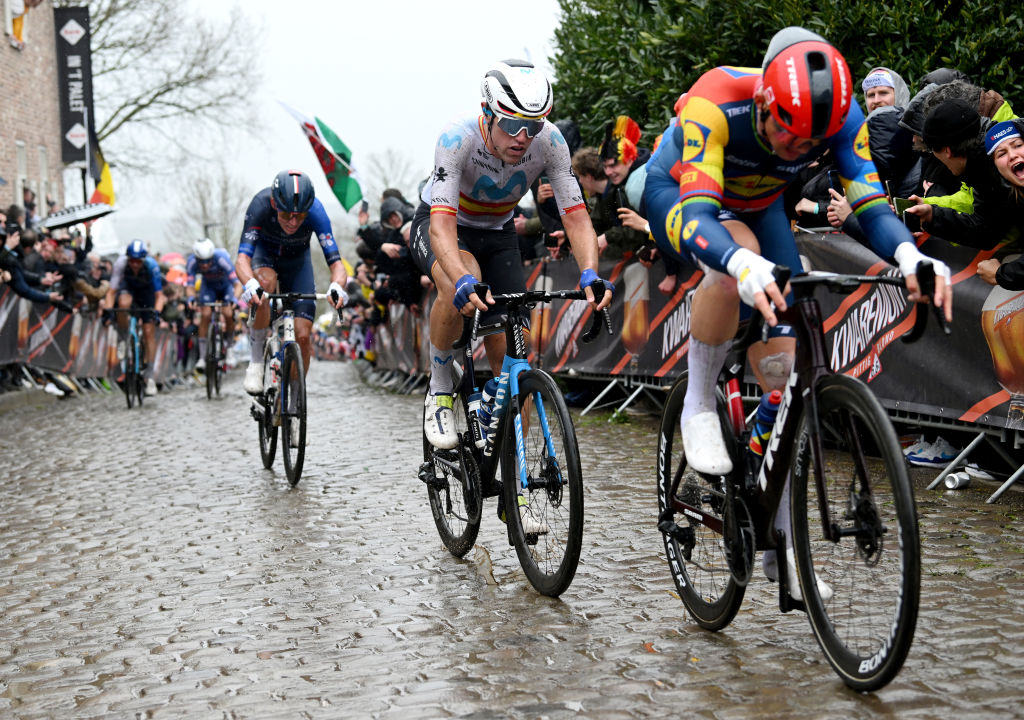
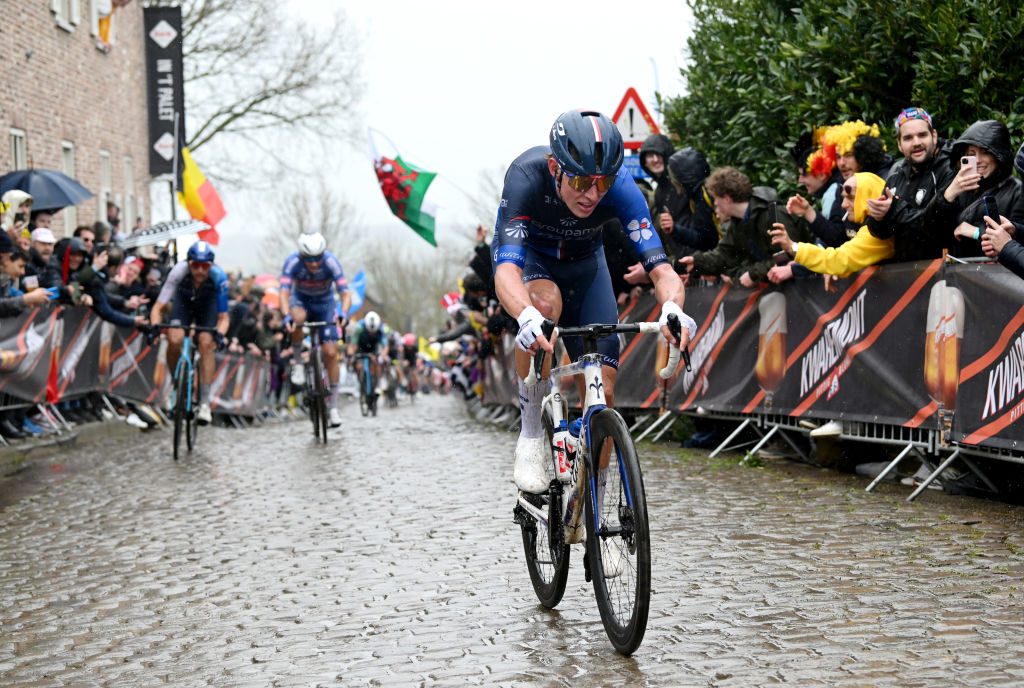
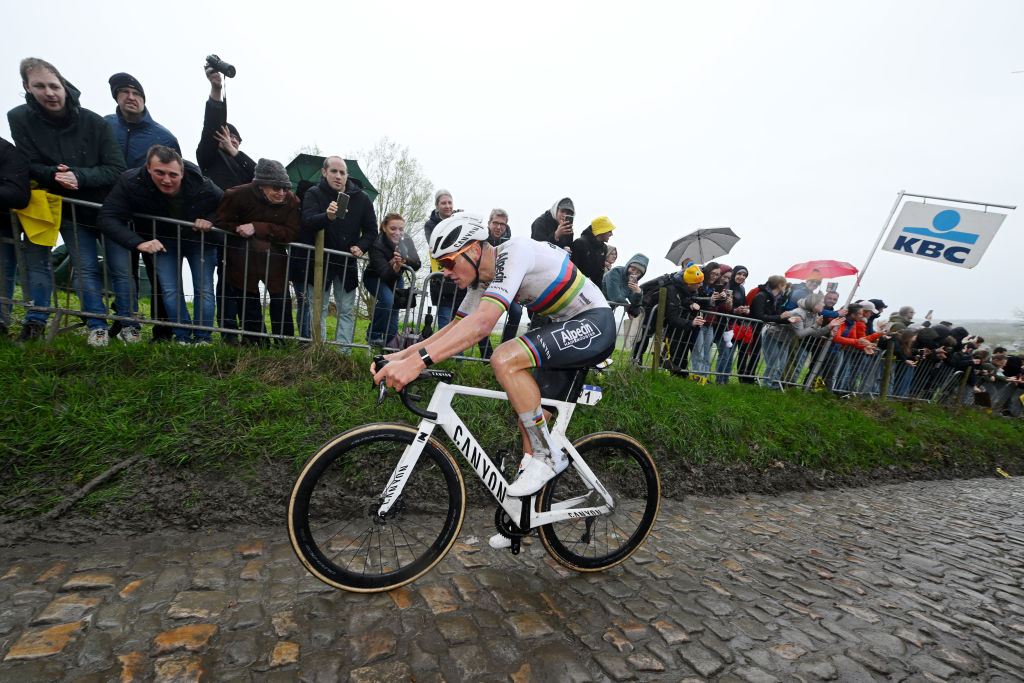
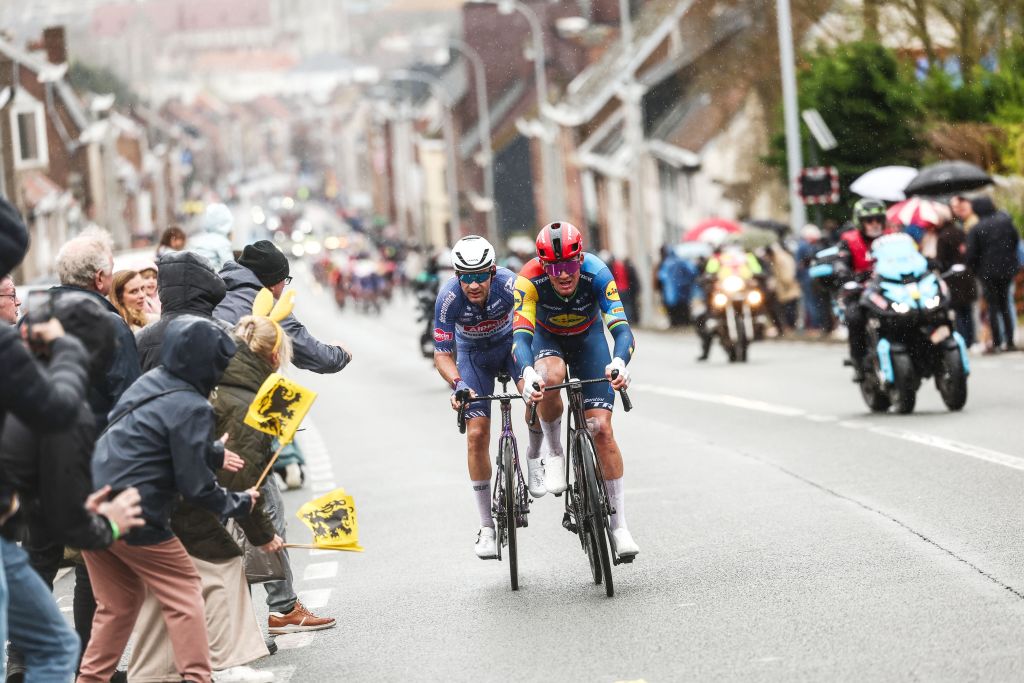
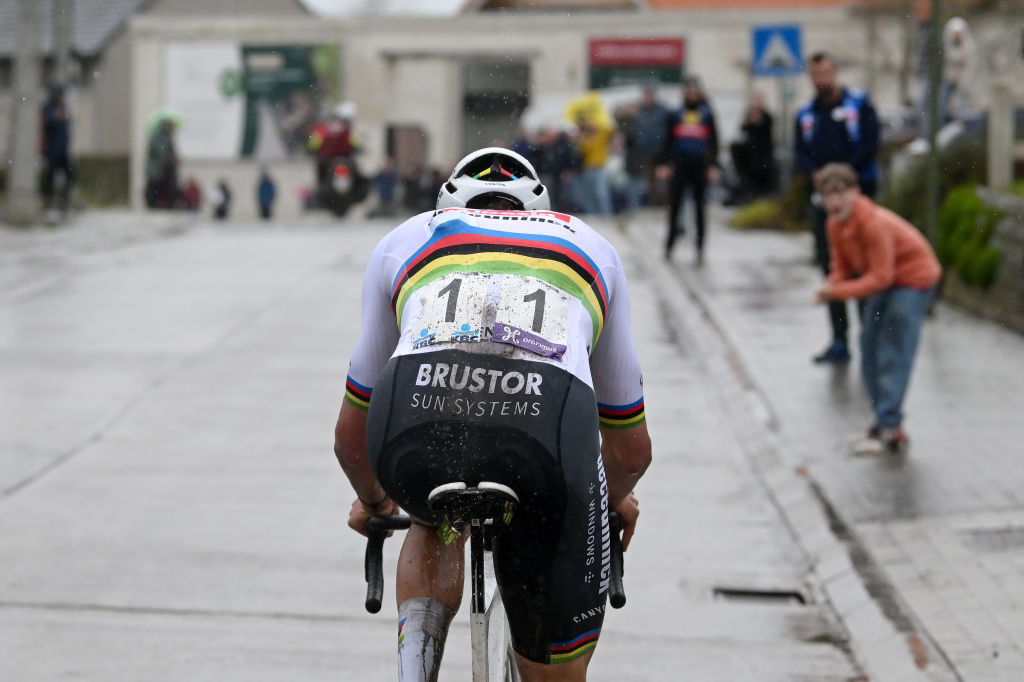
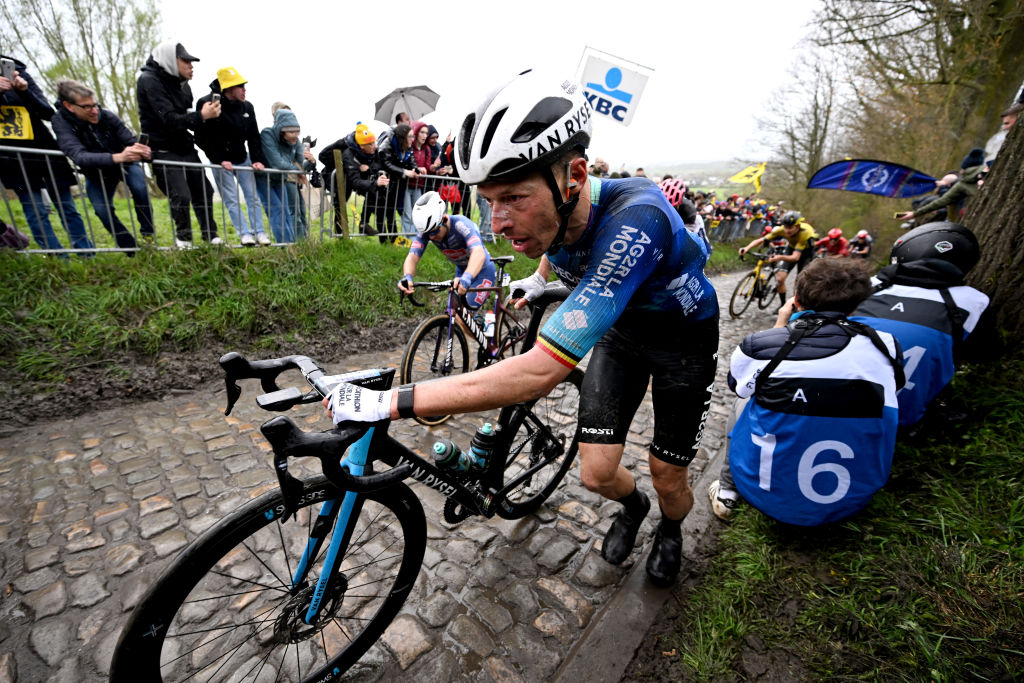
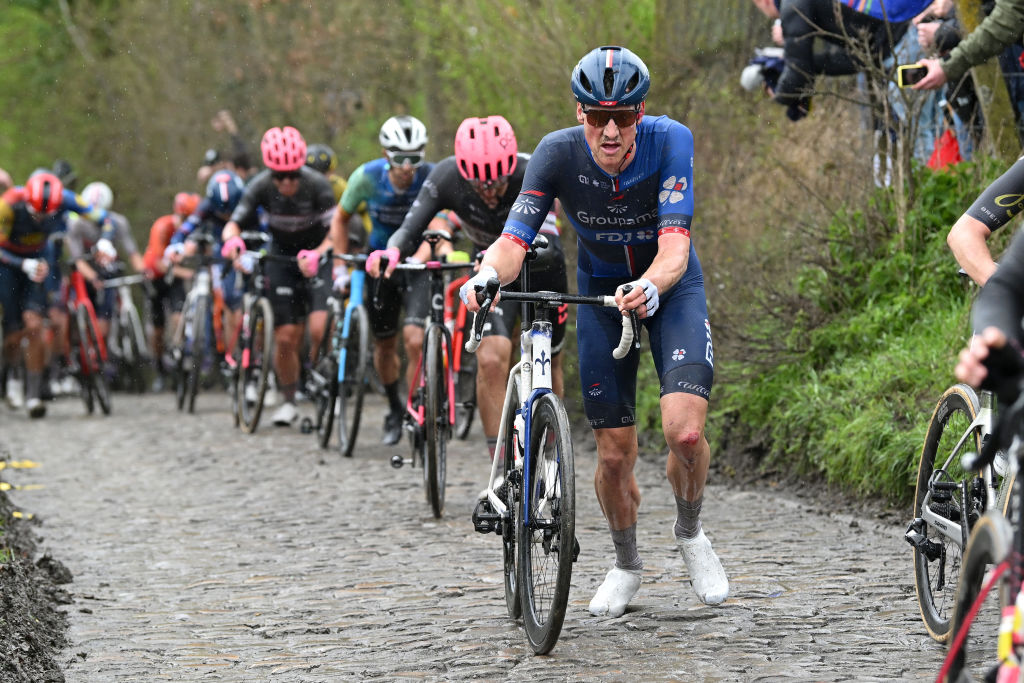
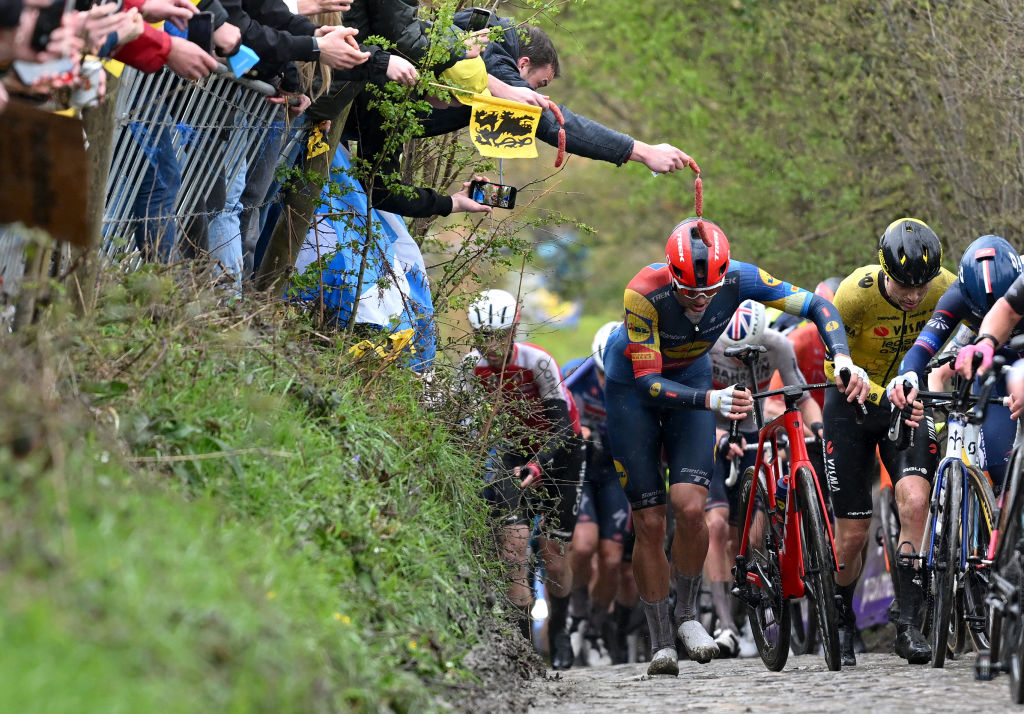
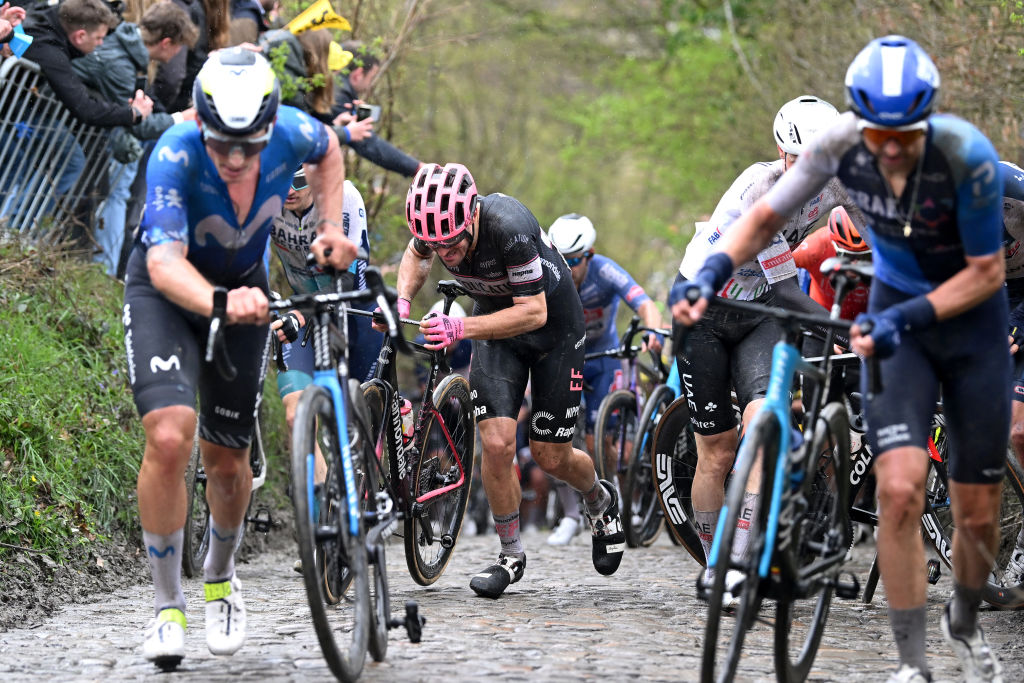
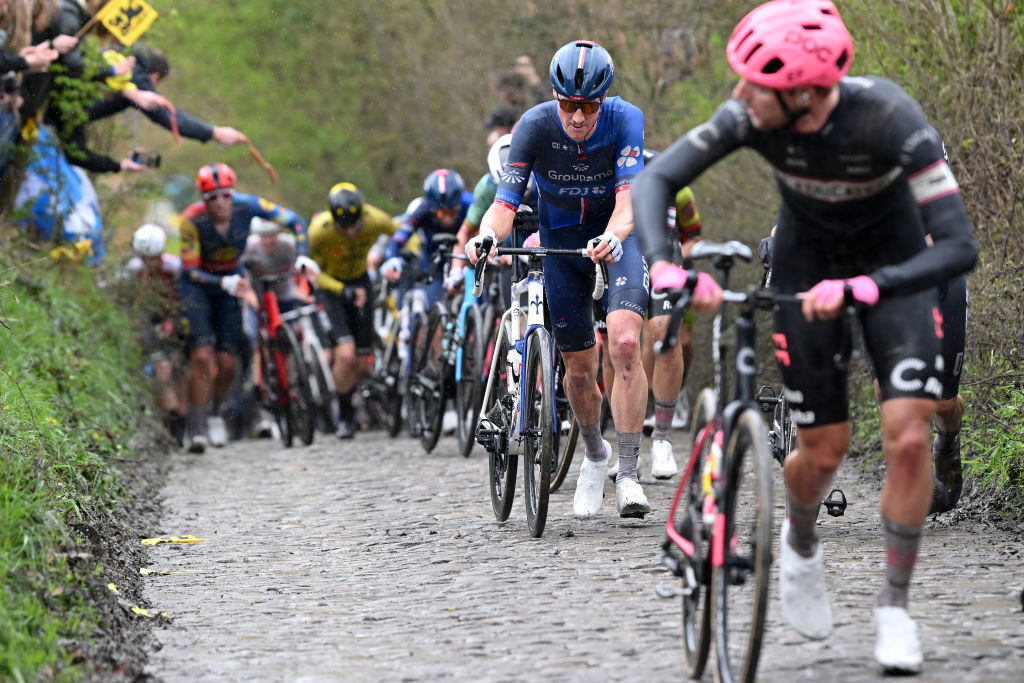
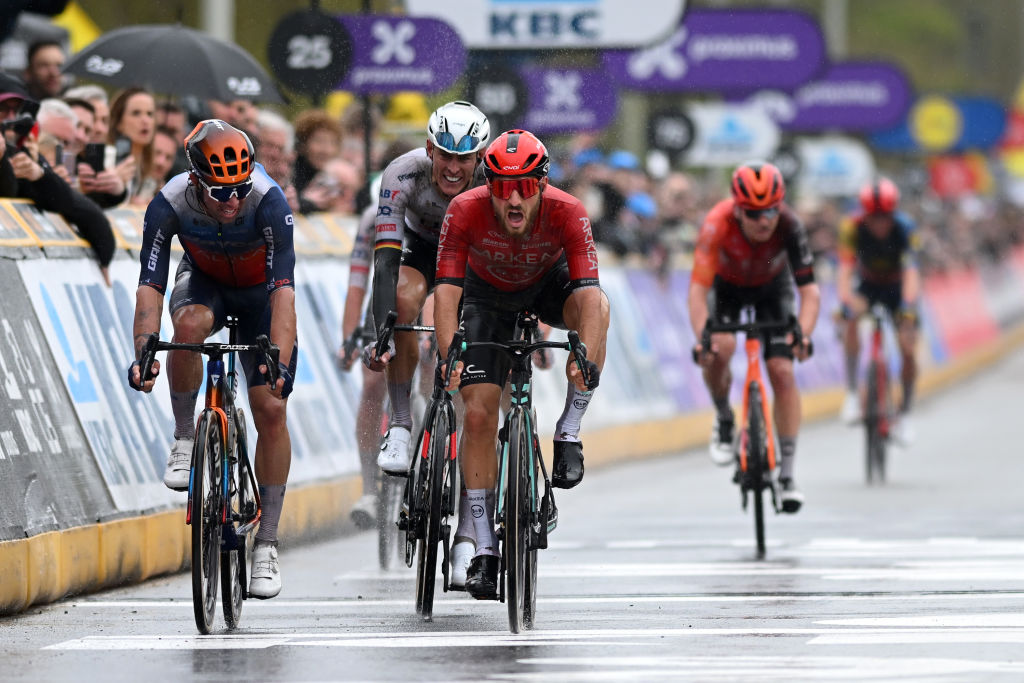
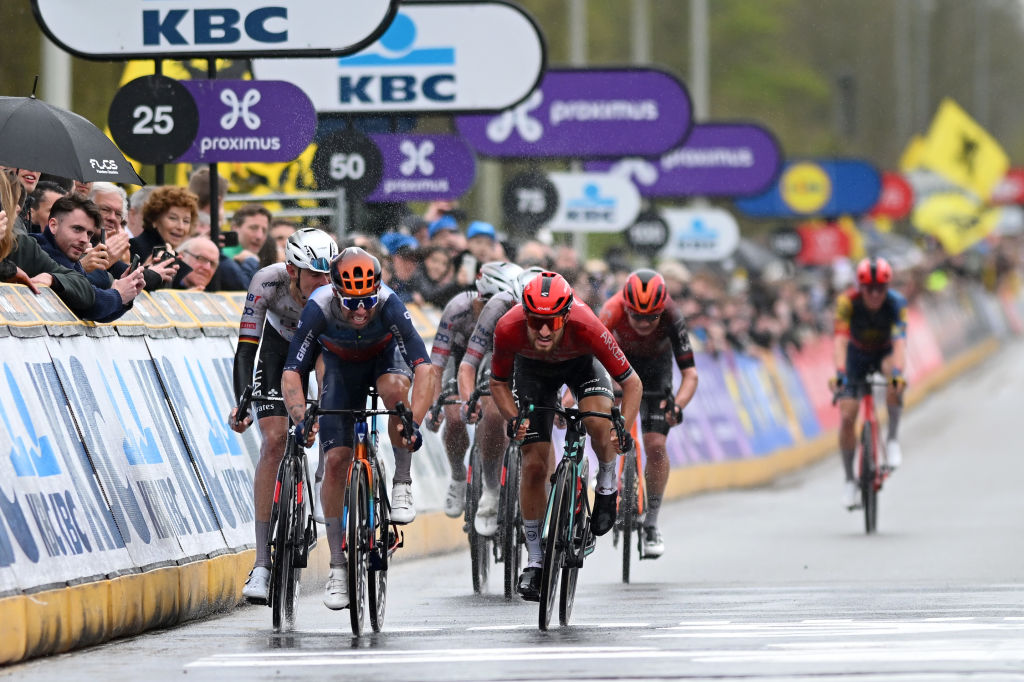
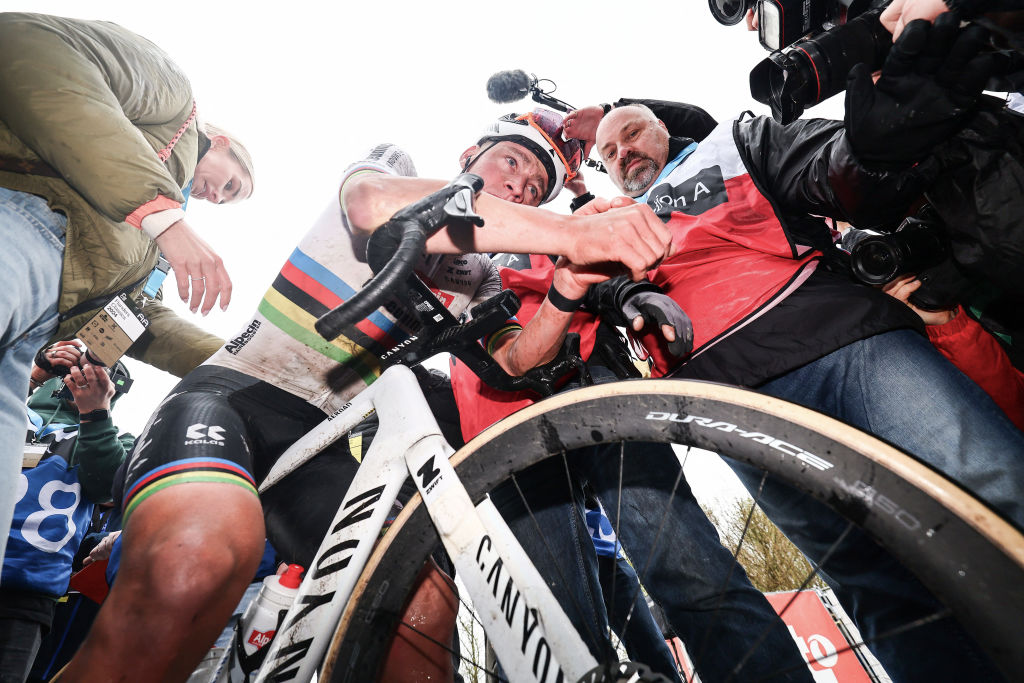
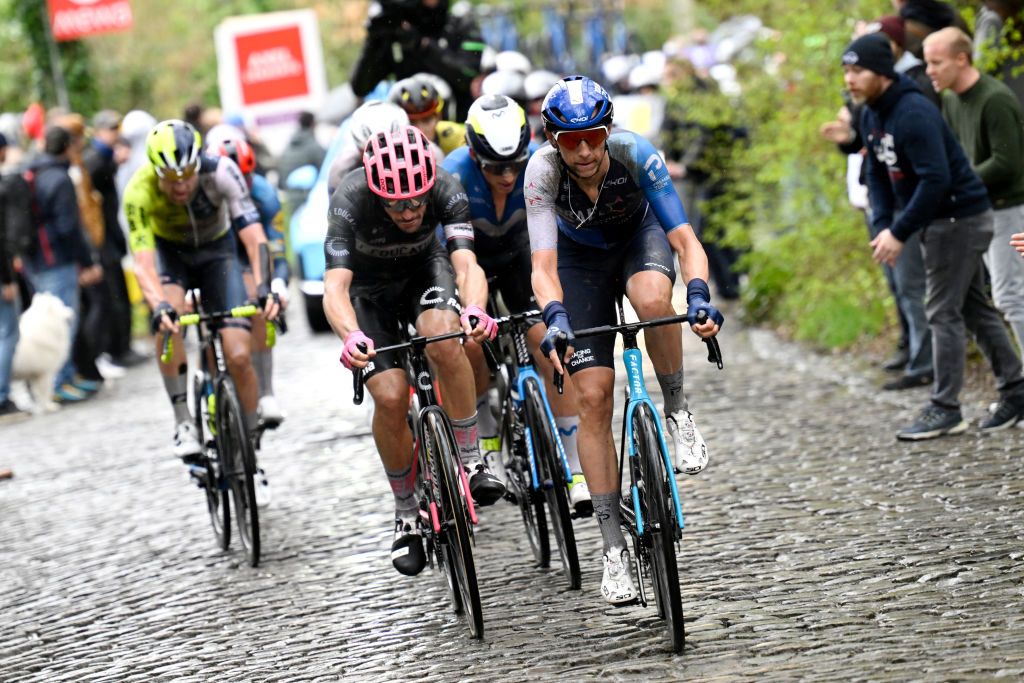
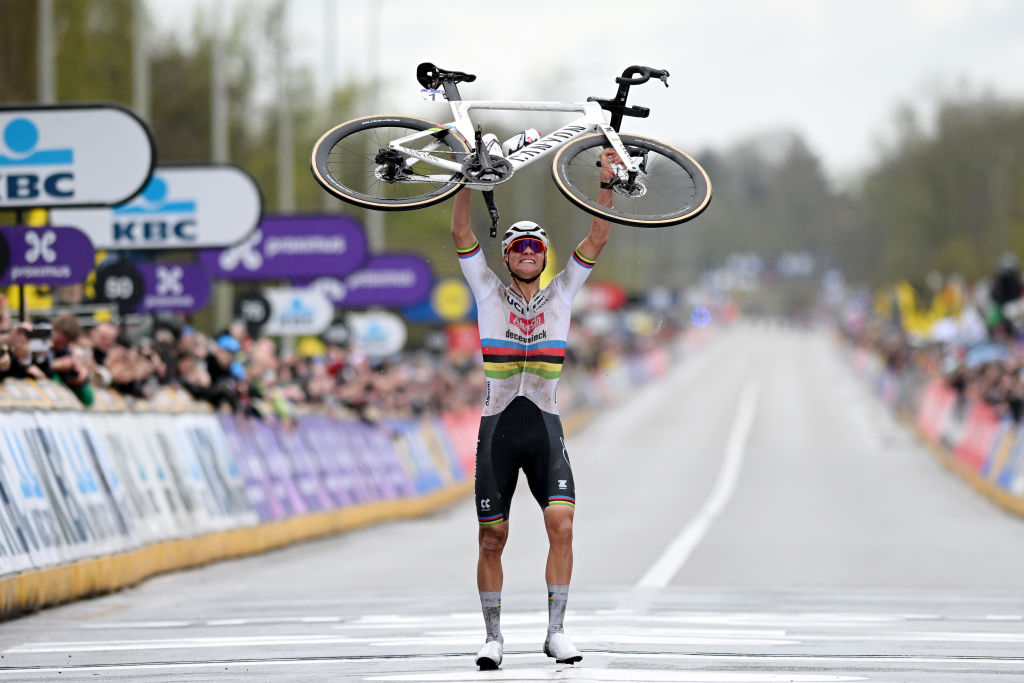
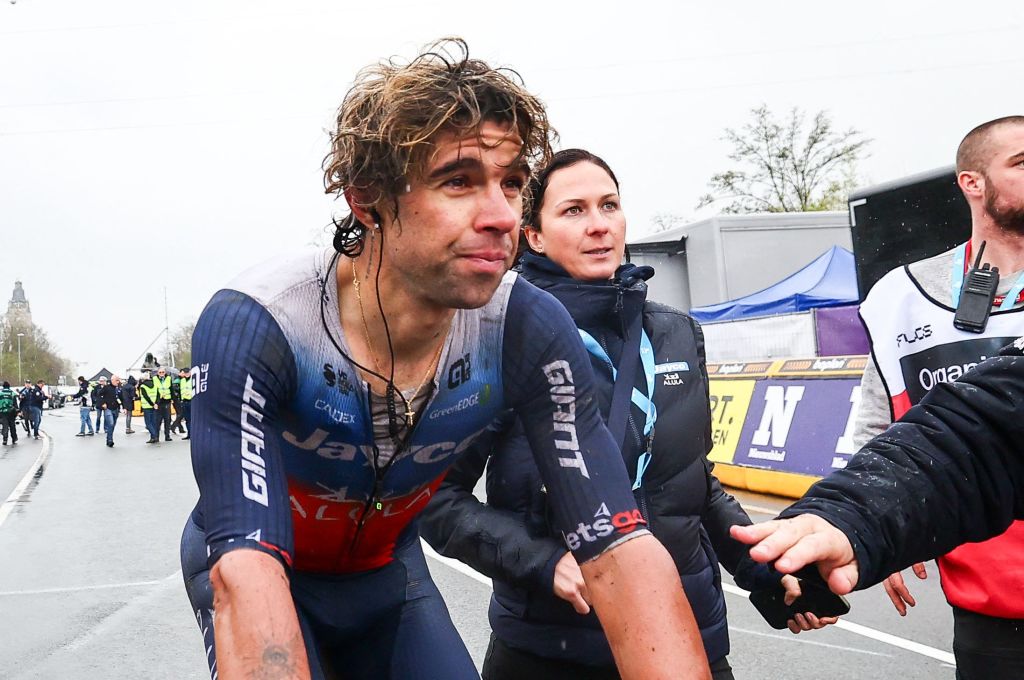
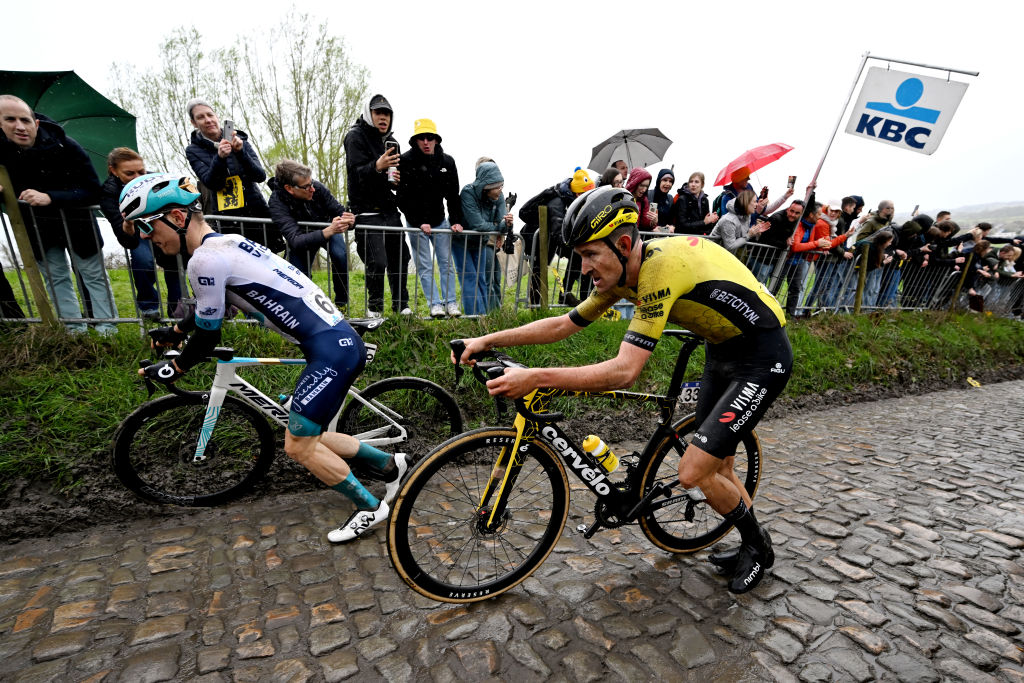
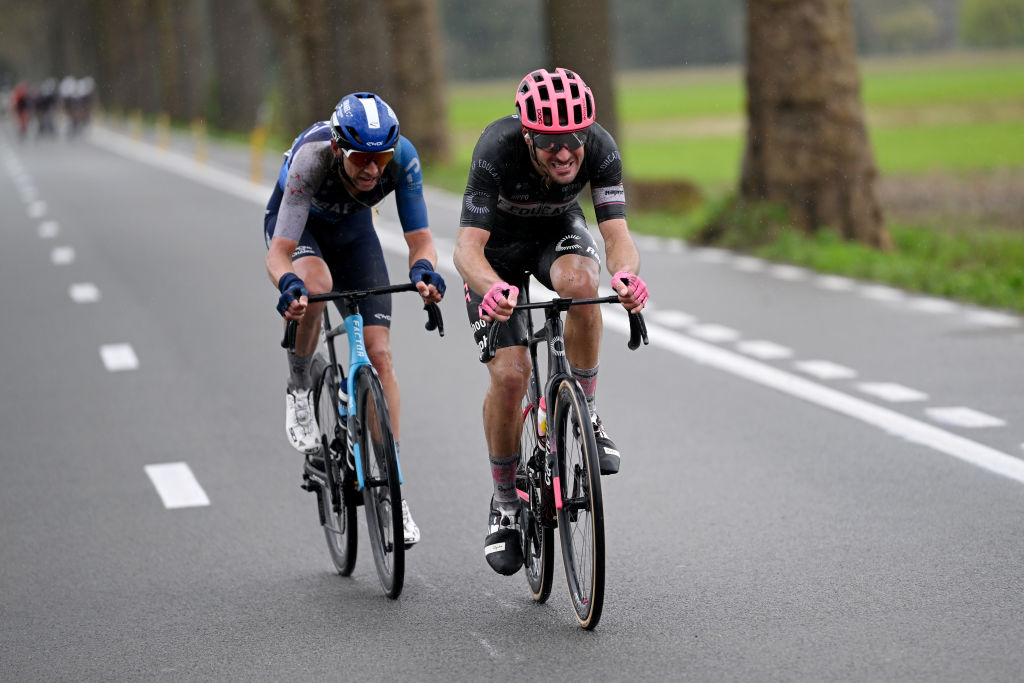
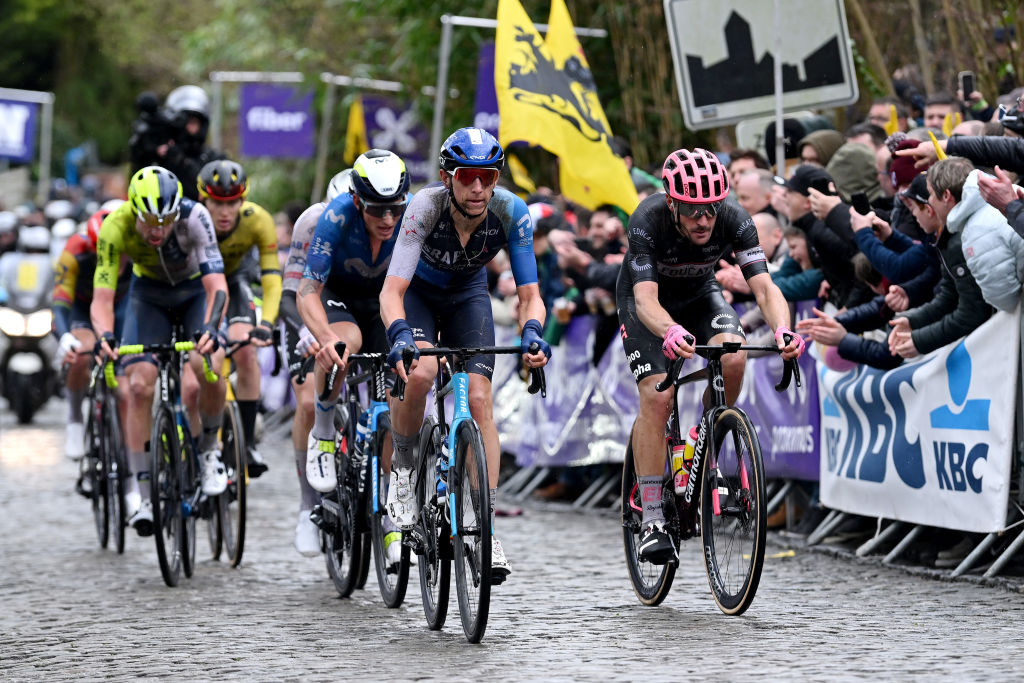
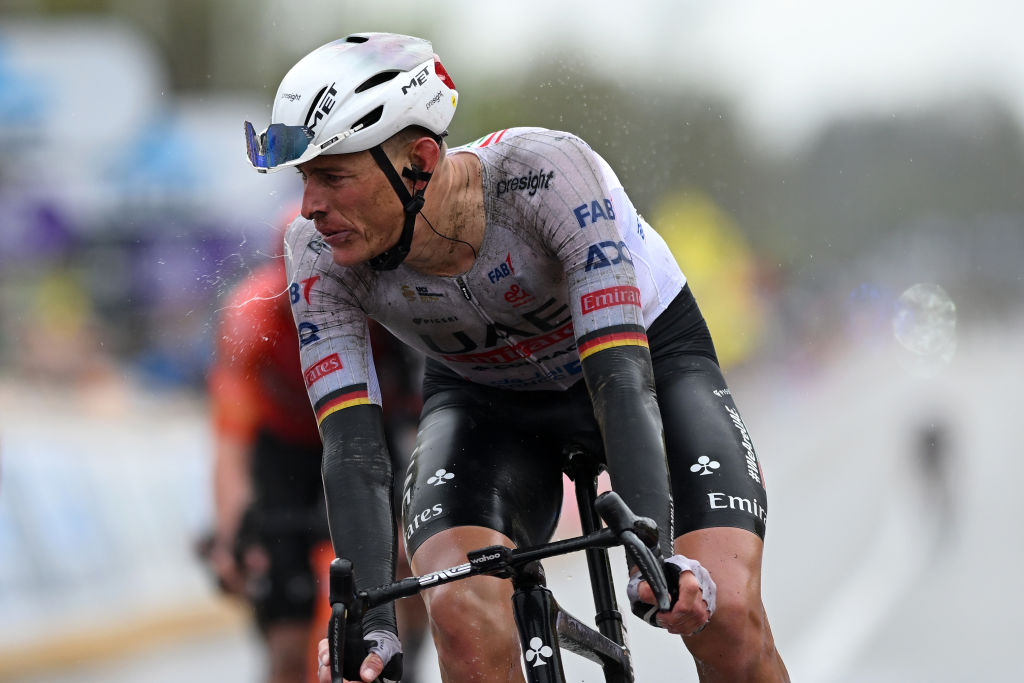
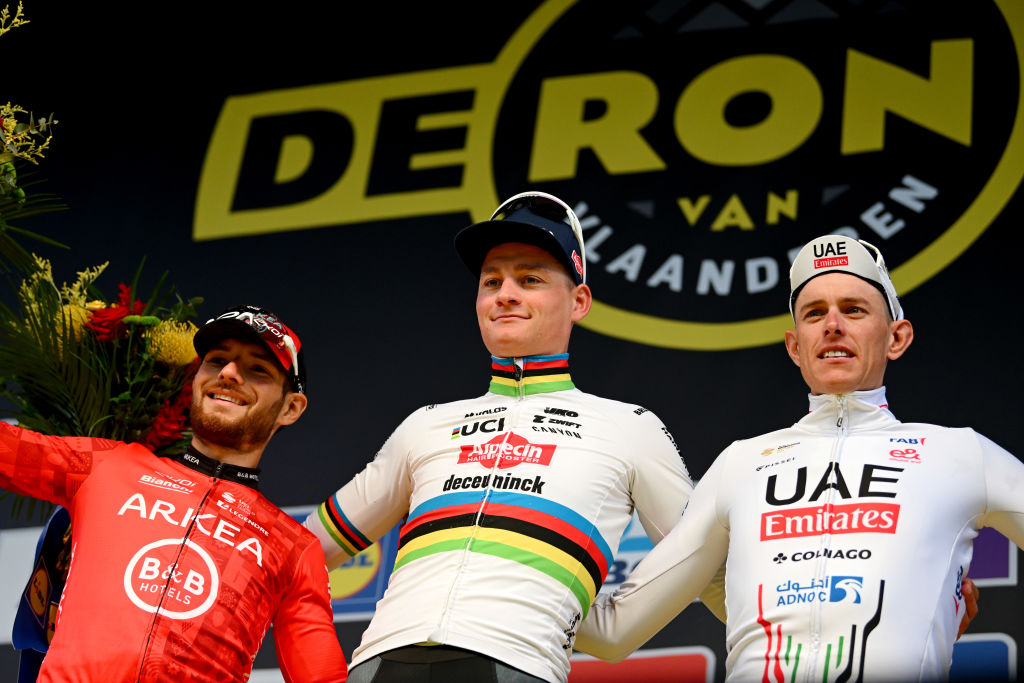
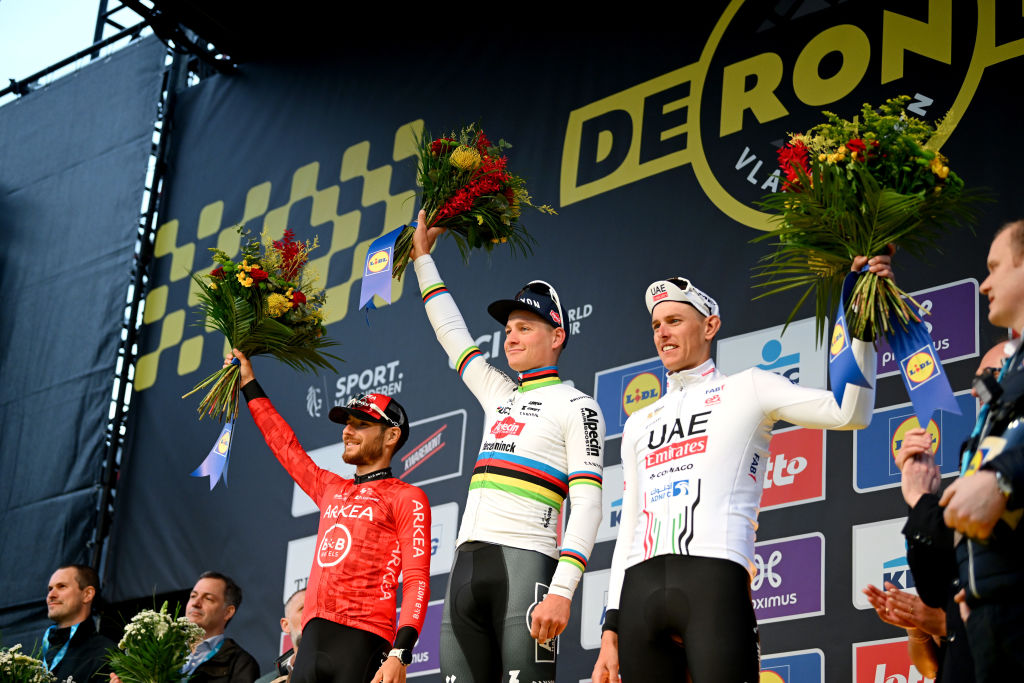
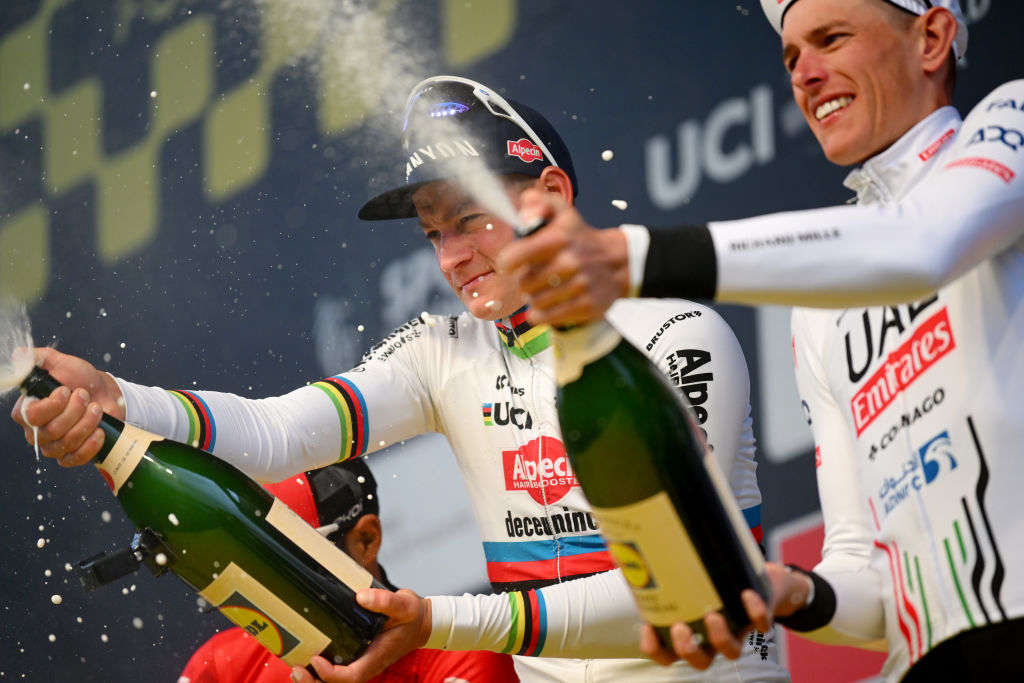
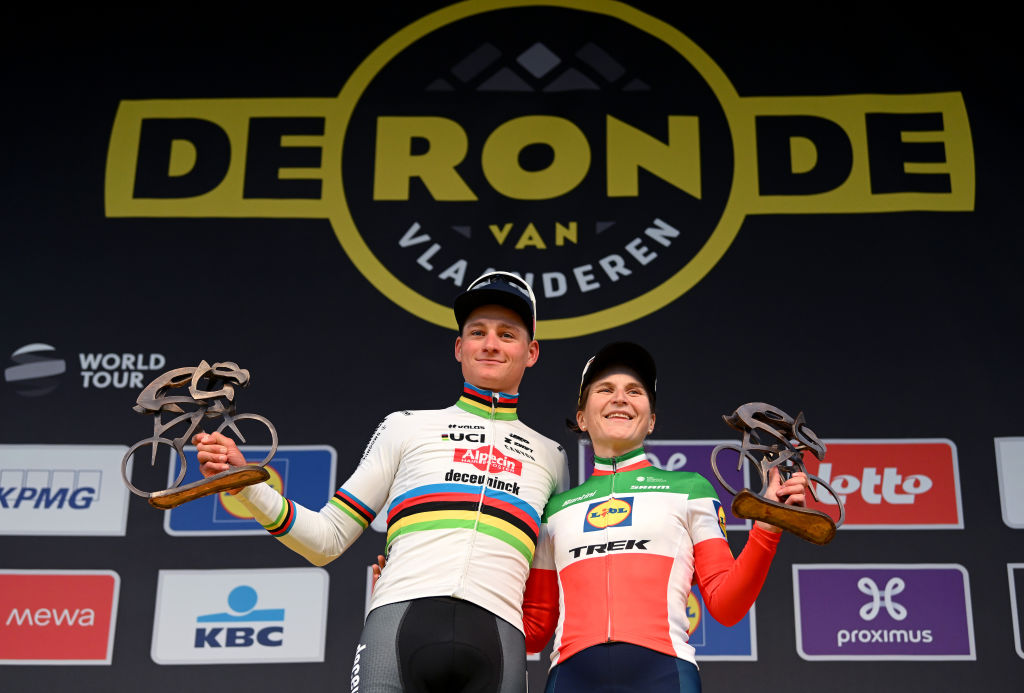
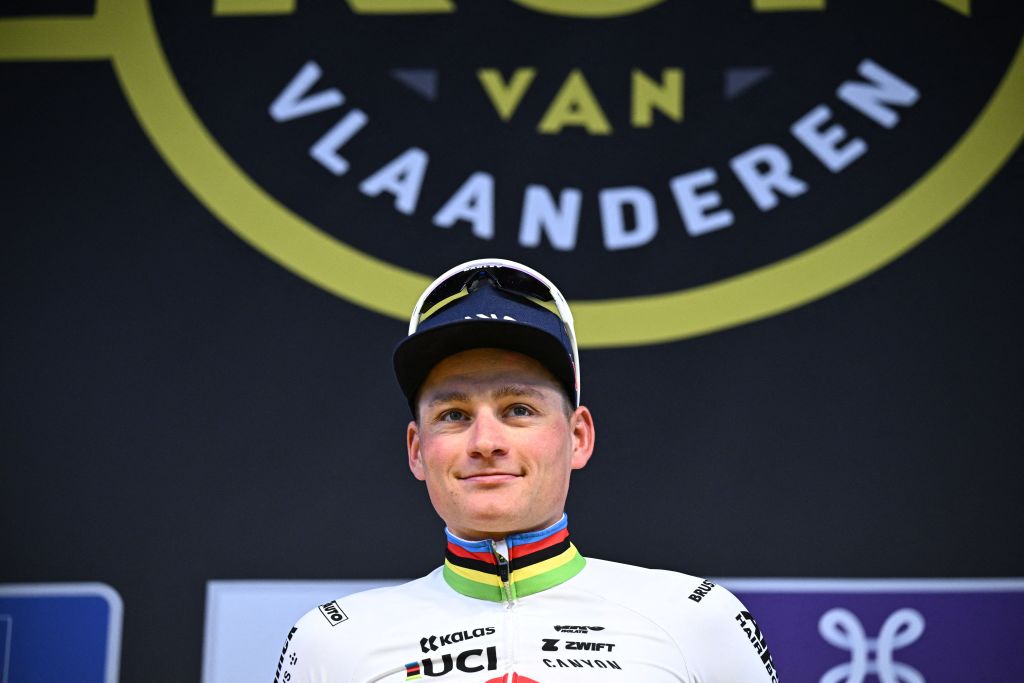
Mathieu van der Poel (Alpecin-Deceuninck) took an astounding solo victory at the Tour of Flanders 2024 when he rode away from the field with 45km remaining to stretch out to a winning margin of 1:02.
Behind him, a two-man breakaway of Alberto Bettiol (EF Education–EasyPost) and Dylan Teuns (Israel-Premier Tech) was caught on the finish line by a chase group from which Luca Mozzato (Arkéa - B&B Hotels) sprinted to second place and Michael Matthews (Jayco-AlUla) took third.
Matthews was later relegated for dangerous sprinting, allegedly deviating from his line to not allow Nils Politt (UAE Team Emirates) to pass him, meaning that fourth-place finisher Pollit moved onto the podium.
Van der Poel was in a league of his own when he attacked on the Koppenberg ascent, with only Matteo Jorgenson (Visma-Lease a Bike) able to keep any semblance of pace with the World Champion. However, with 40km remaining, Van der Pel moved to a margin of over 30 seconds and was squeezing seconds out of Jorgenson every kilometre.
By the ascent of the Kwaremont, Van der Poel had extended his margin over Jorgenson, Pedersen, and the growing chase group, leaving the remaining 37km an informal victory procession.
“My season is already a success now,” Van der Poel said after the finish. “Winning the Tour of Flanders in the World Champion jersey is a dream come true, and I need a few moments to let it sink in.”
“It was just surviving today. It was the hardest one I’ve ever ridden. This weather that we had - the last 20km was almost with my eyes shut.”
The latest race content, interviews, features, reviews and expert buying guides, direct to your inbox!
“I haven’t thought about what has happened,” he continued. “The rain made the cobbled climbs so difficult. The Koppenberg was ridiculously hard - I was slipping and sliding all the way to the top. At the top, I had a nice gap. With this wind, it was pretty far to go alone. I did it but at the end the keg was empty.”
Speaking about the next few weeks of racing and the anticipation of another Monument win, Van der Poel said, “I cannot think about Roubaix yet.”
An exultant Mozzato also spoke after the finish. “Honestly, for me, a good result could be a top 20 or even a top 15,” he said. “I could dream of a top 10. But to be on the podium, for me, is just crazy.”
“In the end, I think I had the best day of my life, as the feeling on the bike was good.”
“I was also lucky in the Kwaremont. I was not in a good position in the peloton, and I had to gamble; someone else did the work to close the gap that was in front of me. I was lucky, but probably this bet paid off for me in the final 30-40km. At that moment, I felt well.
“Sometimes you have to be lucky and so I'm super happy with this.”
Van der Poel’s win has equalled numerous records, including joining only six riders who have ever won the Tour of Flanders three times.
How it unfolded
The heavy rain that washed over Flanders at dawn had cleared by the time the peloton assembled in Antwerp for the start of the Ronde. Even so, it was hard to shake the sense that the absence of home favourite Wout van Aert (Visma-Lease A Bike) had had a dampening effect on the crowds that assembled beneath the Stadhuis. The Visma-Lease A Bike man had been Belgium’s best chance of breaking a record seven-year drought without a Tour of Flanders winner.
In his absence, Mathieu van der Poel was the lone five-start favourite for this Ronde, and there was uncertainty about how his Alpecin-Deceuninck team would choose to police the opening phase of the race. After a flurry of early attacks, the race eventually settled into a holding pattern when a break of eight took shape on the front.
Bert Van Lerberghe (Soudal-Quick Step), Luke Durbridge (Jayco AlUla), Elmar Reinderink (Jayco AlUla), Stanislaw Aniolkowski (Cofidis), David Dekker (Arkéa-B&B), Damien Touzé (Decathlon-AG2R), Lionel Taminiaux (Lotto-Dstny) and Jelle Vermoote (Bingoal WB) stuck up a solid working alliance, building a lead of four minutes over a peloton where Silvan Dillier was performing the lion’s share of the pace-making for Van der Poel.
That gap began to contract around the midpoint when the race swung tackled the first of its 17 climbs, the Oude Kwaremont. A crash shortly afterwards had the effect of reducing the peloton. Although the main contenders emerged unscathed, the tension was rising, with Alpecin and Visma starting to become ever more active.
Shortly before the Wolvenberg, Van der Poel’s young teammate Axel Laurance went on the attack with Jonas Abrahamsen (Uno-X), but Visma were quick to shut down the move on the climb, with Matteo Jorgenson himself setting a brisk tempo in the chasing peloton. The intensity continued over the other side, with Mads Pedersen (Lidl-Trek) briefly pressing the pace.
With just under 110km still to race, a pair of genuine contenders had already tested the waters – unthinkable at this point in the race a decade ago, but seemingly par for the course in the dizzying cycling of the 2020s.
The Molenberg was the next rendezvous, with Lidl-Trek winning the drag race into the climb before Pedersen pushed the pace again, this time with real intent. Jorgenson and Van der Poel were immediately on his wheel, while behind, the peloton fragmented still further.
Over the other side, Visma’s approach was ever more apparent – despite their diminished roster, they were eager to attack and isolate Van der Poel, and their efforts saw a small group form with 97km remaining. Tiesj Benoot and Dylan van Baarle were joined by Pedersen, Ben Turner (Ineos), Oliver Naesen (Decathlon-AG2R), Brent Van Moer (Lotto-Dstny) and Nils Politt (UAE Team Emirates), with Gianni Vermeersch representing Van der Poel.
The Pedersen-Benoot group caught the remnants of the break before the Berendries, and they carried a lead of 20 seconds over Van der Poel et al into the climb. The world champion briefly looked isolated, but he was rejoined by three Alpecin teammates ahead of the Valkenberg and they set about ensuring the dangermen up front didn’t disappear from sight.
Van der Poel, however, wanted to be closer. Once on the Valkenberg, the Dutchman climbed from the saddle and accelerated in solo pursuit of the leaders, with Jorgenson and others following shortly afterwards.
By the time Van der Poel made it across, however, Pedersen had attacked again. The Dane bludgeoned his way clear on the Valkenberg, this time with Van der Poel’s teammate Vermeersch marking him. The pair opened a buffer of 15 seconds over the expanded peloton as they entered the final 80km, where the tension was dialled up another notch by a crash that saw Stefan Küng (Groupama-FDJ) among the fallers.
That gap would yawn towards half a minute by the time Pedersen and Vermeersch hit Berg ten Houte. UAE sprang into action with Mikkel Bjerg setting a fierce tempo on behalf of Tim Wellens, but when the pace in the peloton abated over the other side, Pedersen and Vermeersch rebuilt their advantage all over again.
Van der Poel sparks into action
The speed in the bunch ratcheted upwards on the rapid run-in to the second ascent of the Oude Kwaremont, an approach made all the more hazardous by the steady rain that was now falling over the race. Pedersen remained grimly committed to his task, but the Dane must have known his was a doomed endeavour when he and Vermeersch reached the base of the Kwaremont with a lead of barely a dozen seconds over Van der Poel et al.
After Oier Lazkano (Movistar) had stretched out the bunch and brought back Pedersen and Vermeersch, Van der Poel decided to test the waters himself. 55km from the finish, the world champion put in a searing seated acceleration that briefly carried him clear alone. Near the summit of the Kwaremont, he was joined by Lazkano, Wellens, Pedersen, Laurence Pithie (Groupama-FDJ) and Dylan Teuns (Israel Premier Tech), while the rest of the contenders scrambled to organise a chase behind. It was a sign of things to come.
The race came back together on the Paterberg, but it was a temporary reprieve. Ben Turner (Ineos) forced the pace, and his effort stretched and then splintered the front group all over again, leaving a dozen or so riders in front, including Van der Poel, Teuns, Pedersen, Lazkano, Jorgenson, Wellens and Matej Mohoric (Bahrain Victorious).
Lazkano’s teammate Ivan Garcia Cortina struck out alone shortly afterwards, and he led the race onto the Koppenberg, but the steep slope and slippery cobbles forced him to a halt on the ascent. In truth, it made little difference. Van der Poel made light work of the gradient, launching a fierce, seated acceleration that carried him clear alone with 44km still to race.
Jorgenson was his closest pursuer on the stiffest, 20% slopes, with Pedersen and Teuns following at a distance. Behind, most of the other contenders were forced off their bikes and onto their feet by the Koppenberg, their hopes of challenging Van der Poel in the finale already seemingly dashed.
As Van der Poel glanced over his shoulder on the false flat that led towards the cobbles of Mariaborrestraat, he could see Jorgenson chasing at just a hundred metres or so. There was no prospect of Van der Poel waiting for help at this point. The world champion was now fully committed to his effort, and his lead on Jorgenson began to yawn inexorably outwards – 24 seconds by the time he crested the Steenbeekdries, 37 by the time he rattled over the cobbles of the Stationsberg.
Van der Poel’s exhibition continued on the Taaienberg, where he stretched his lead out to a minute by the summit. With 37km still to race, it was already clear that the final ascents over the Kwaremont and Paterberg would be an exhibition.
Jorgenson was joined by Teuns, Wellens, Garcia Cortina, Alberto Bettiol (EF Education-EasyPost), Pedersen and Laurenz Rex (Intermarché-Wanty) in his pursuit, but it made precious little distance. Van der Poel’s lead continued to grow. The rest were long since racing for second place.
Results
Results powered by FirstCycling

Barry Ryan was Head of Features at Cyclingnews. He has covered professional cycling since 2010, reporting from the Tour de France, Giro d’Italia and events from Argentina to Japan. His writing has appeared in The Independent, Procycling and Cycling Plus. He is the author of The Ascent: Sean Kelly, Stephen Roche and the Rise of Irish Cycling’s Golden Generation, published by Gill Books.
Latest on Cyclingnews
-
Silke Smulders fractured lumbar vertebrae in stage 2 crash at Setmana Valenciana
Second setback for the Dutch rider in 2026 after missing Tour Down Under -
'We could not stay on the bikes' - with riders blown off course, a 15-minute 'race' and a full winners' final ceremony, here's how Vuelta a Murcia's windblasted stage-that-wasn't veered into something far odder
Marc Soler crowned overall winner of radically shortened Spanish stage race -
Derek Gee-West returns to racing for the first time since June at UAE Tour, in solid shape at new team Lidl-Trek 'considering where I was physically and mentally in November'
Canadian national champion says he will have new jersey for Monday's stage after substituting ill teammate Gilulio Ciccone -
Figuiera Champions Classic: defending champion Antonio Morgado outduels Alex Aranburu for repeat home win after ferocious breakaway battle
Pau Martí claims third in Portuguese one-day season opener, while UAE Team Emirates celebrate tenth win of 2026
